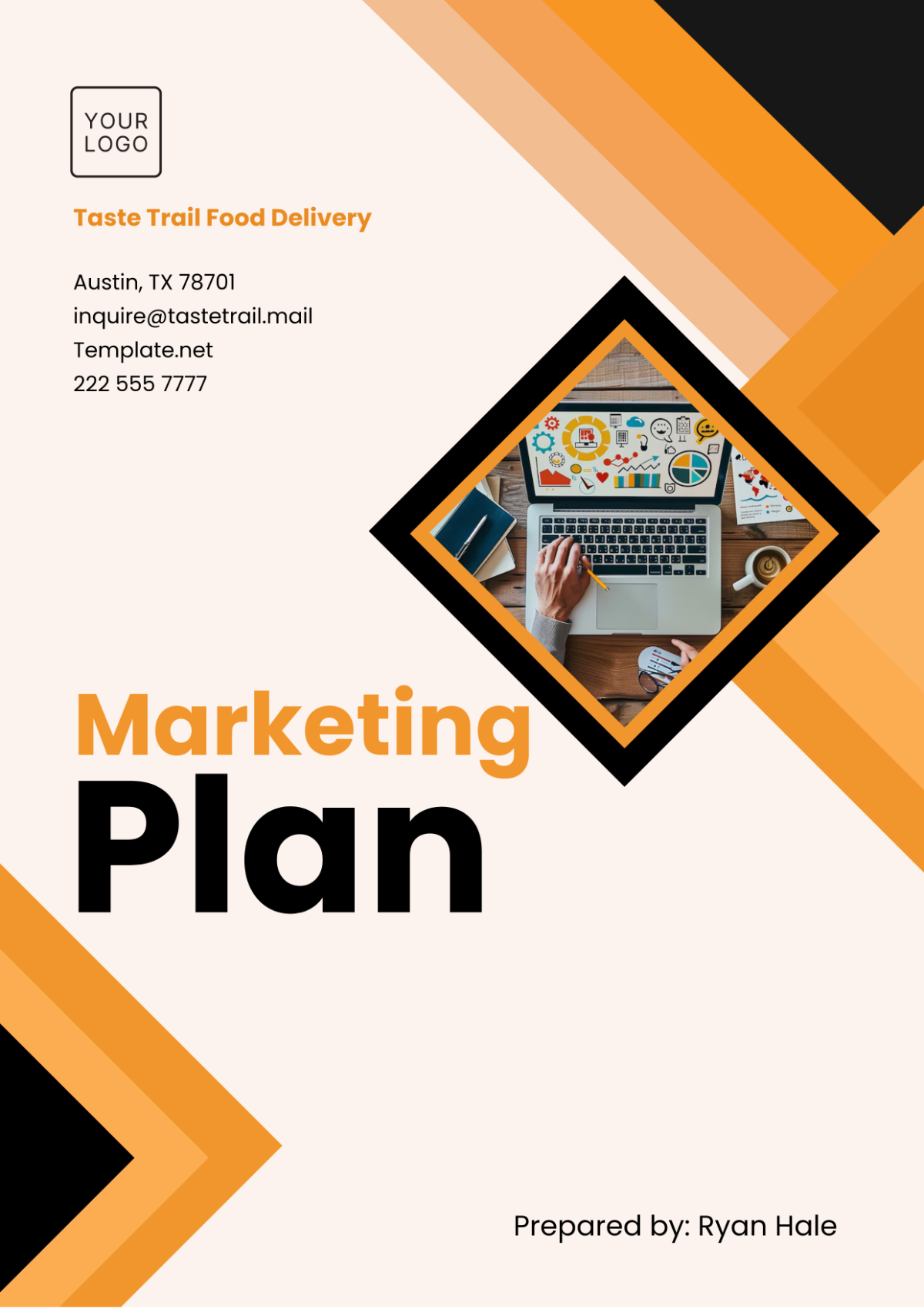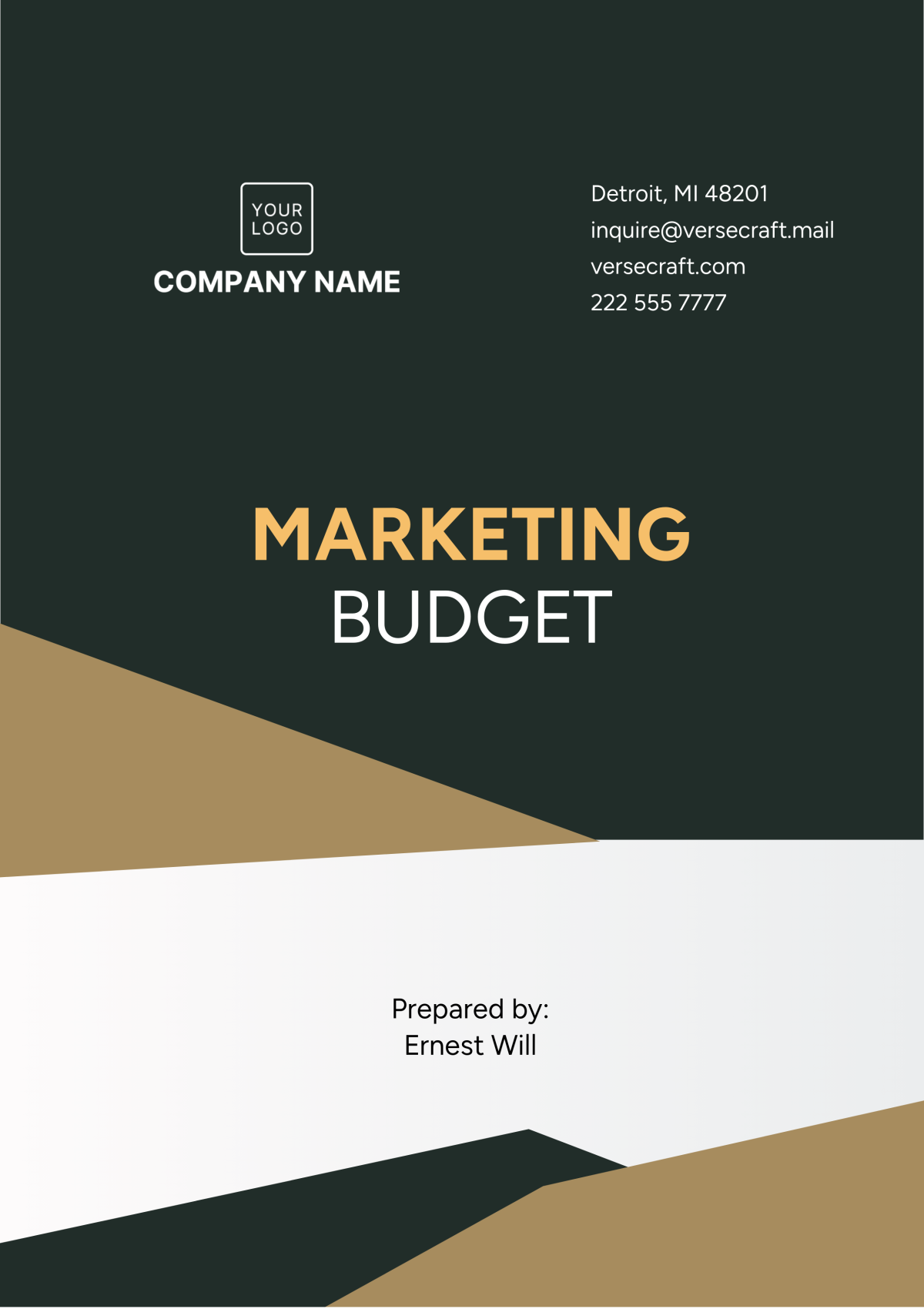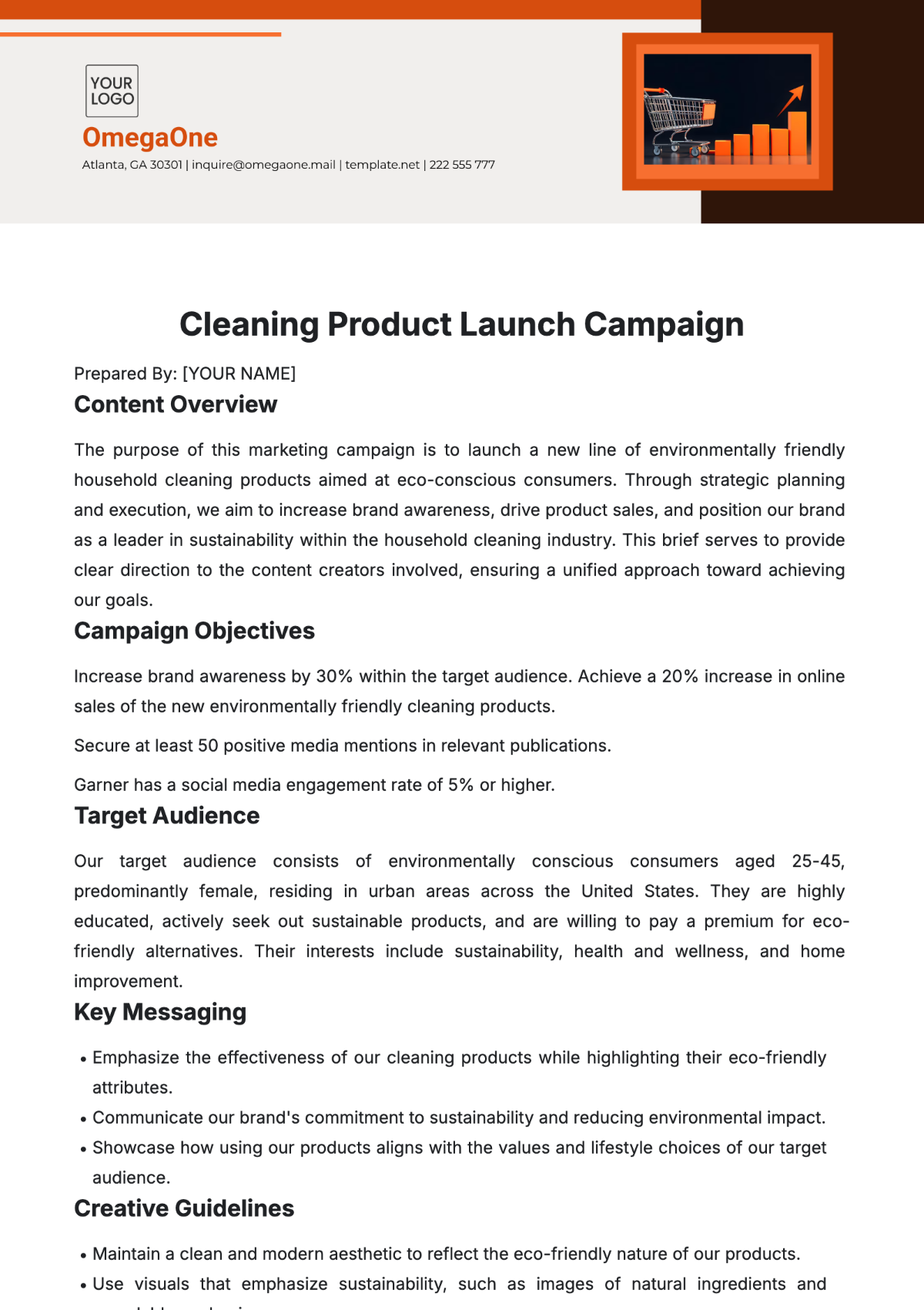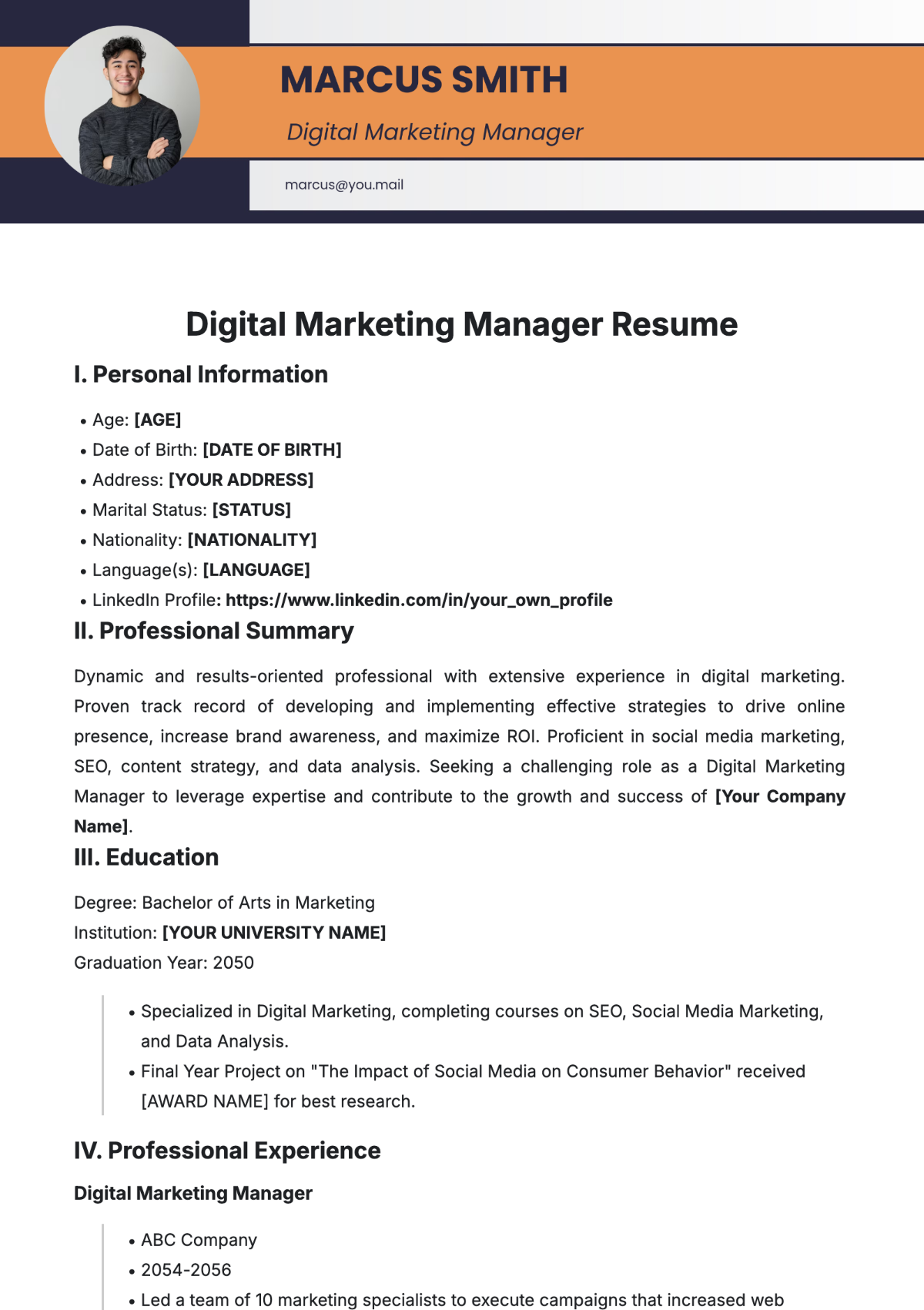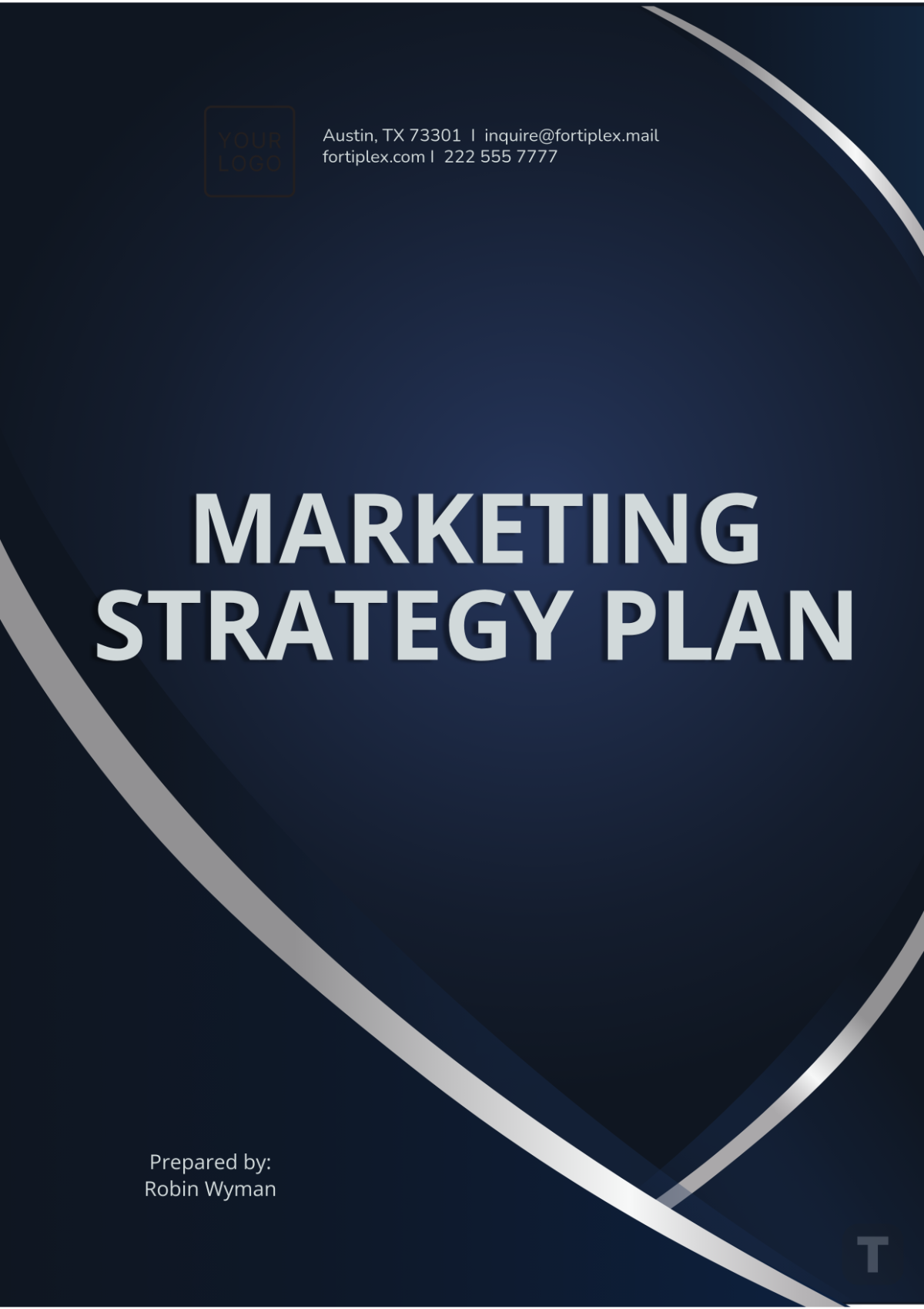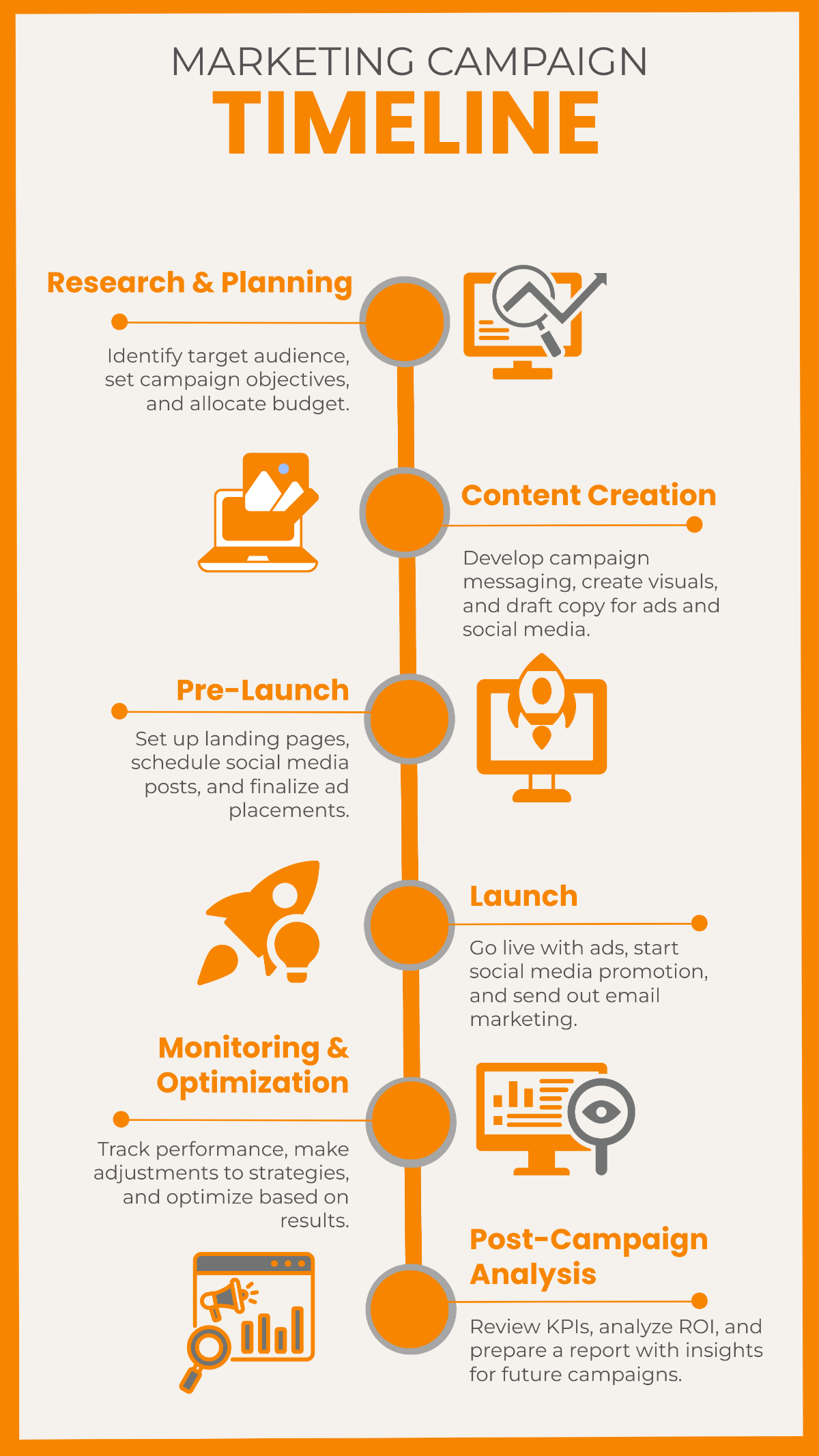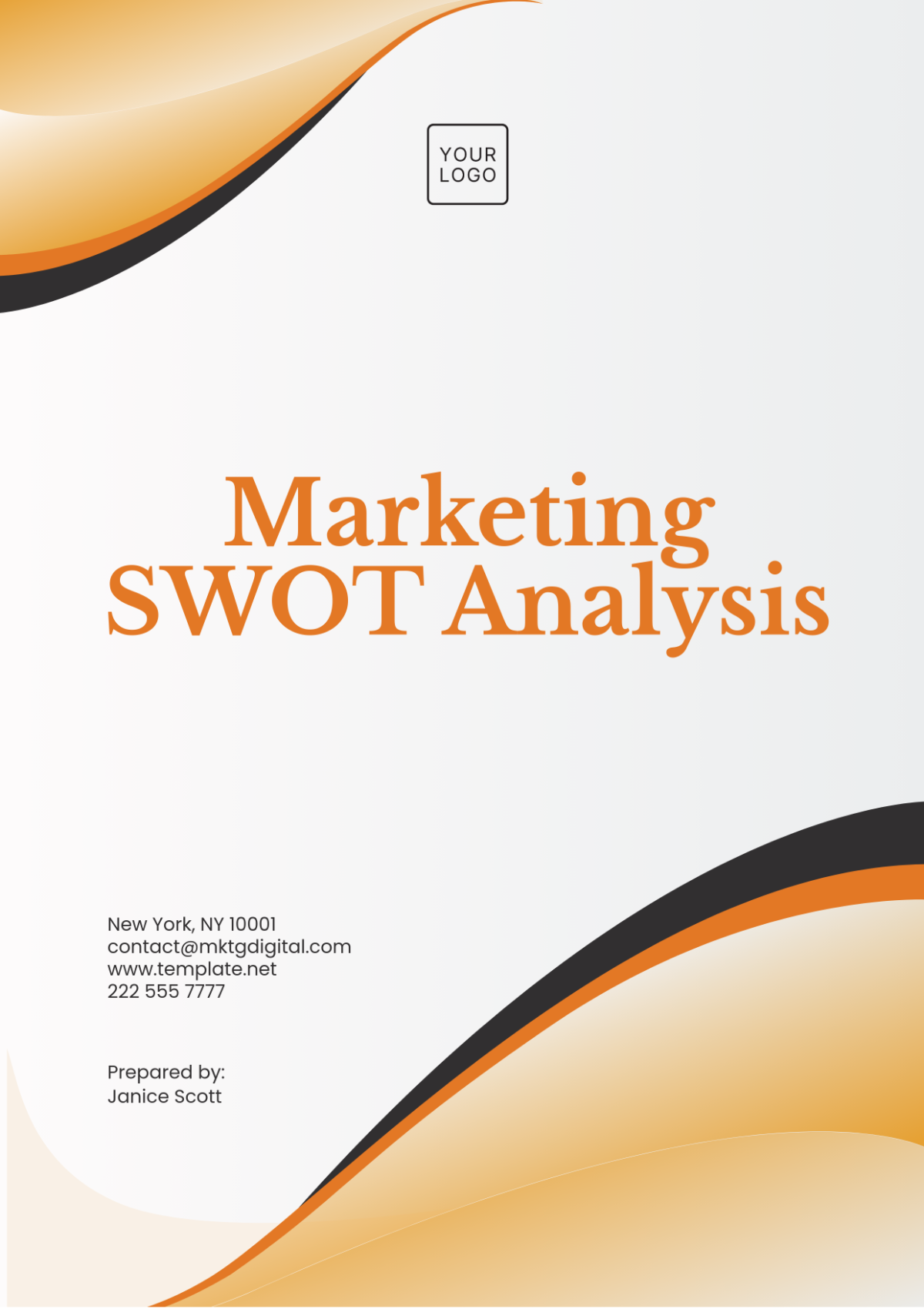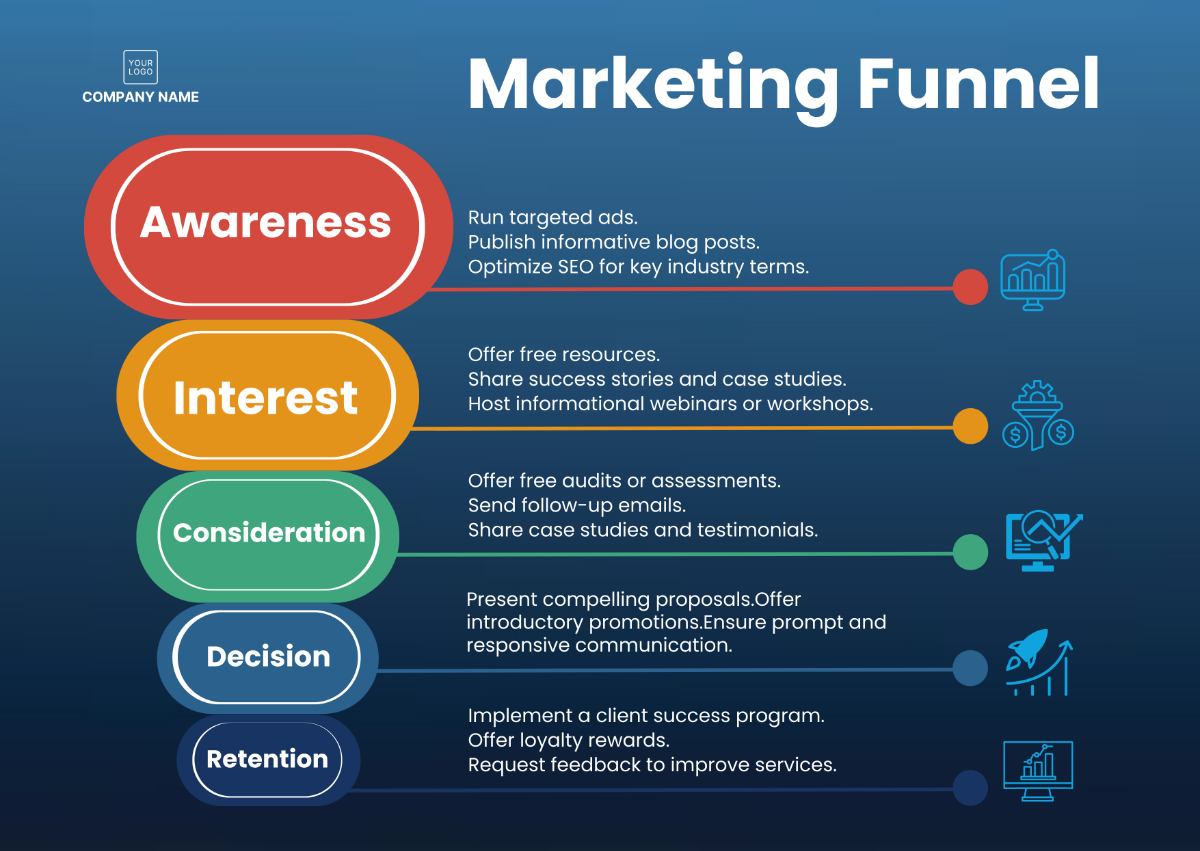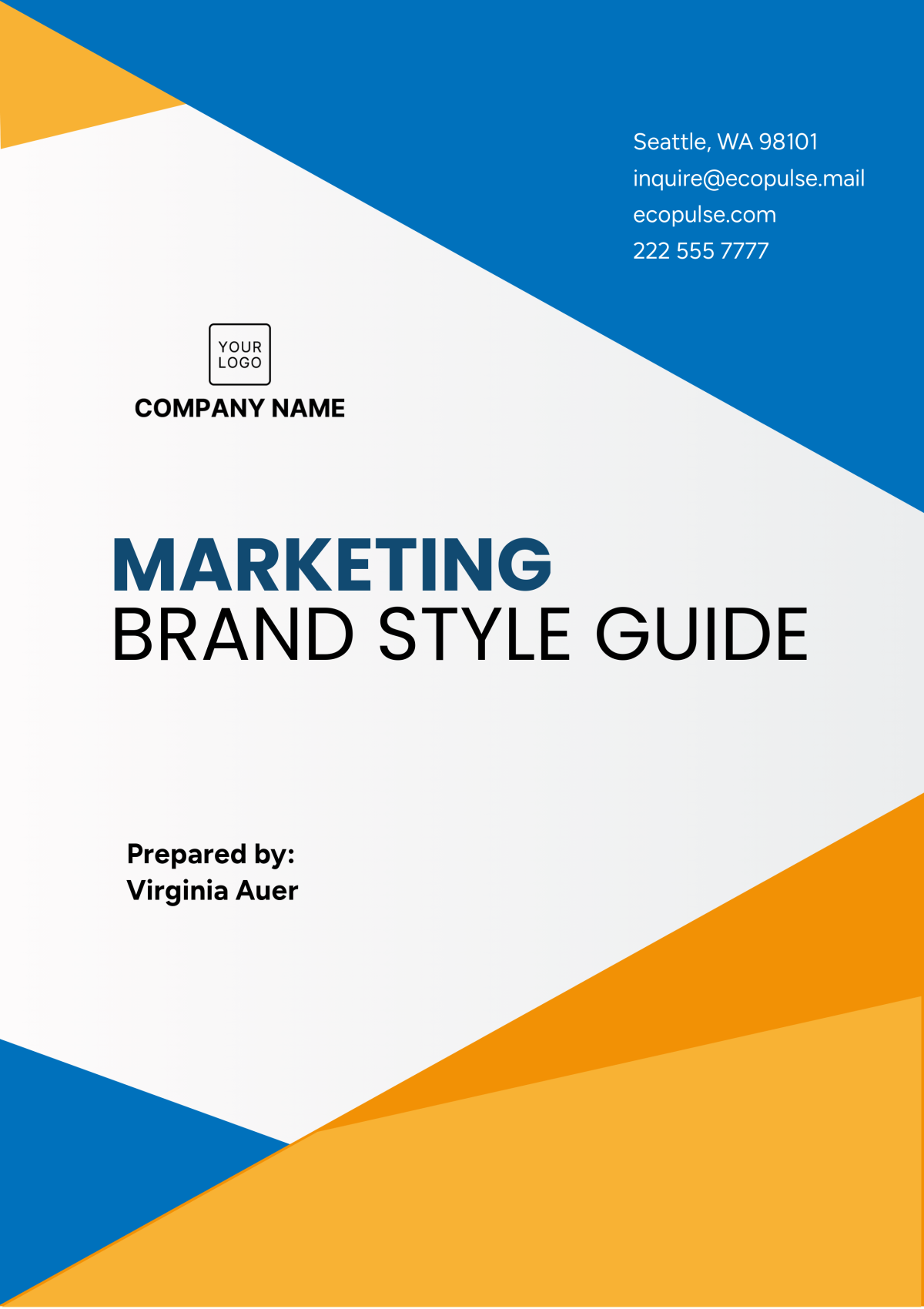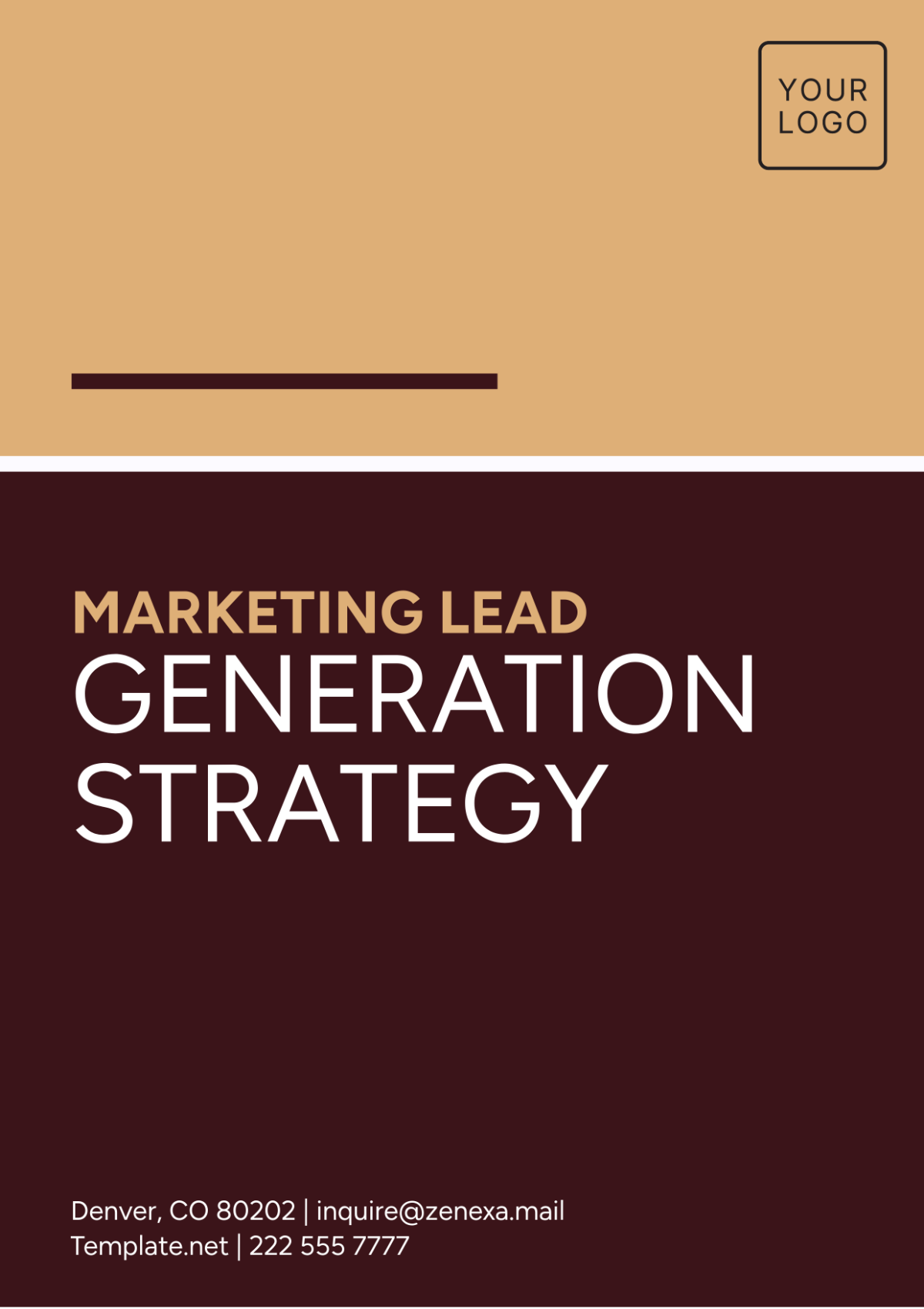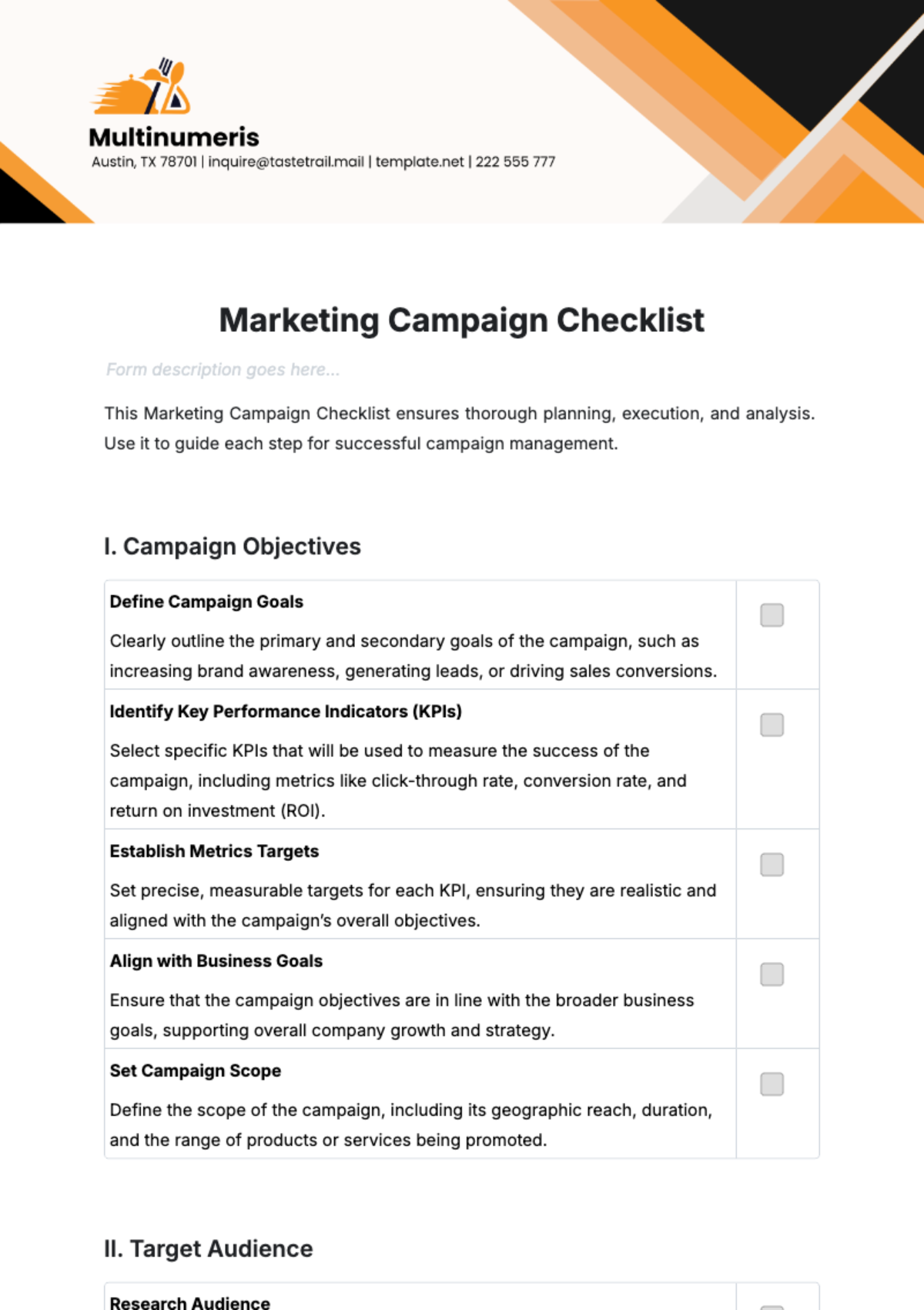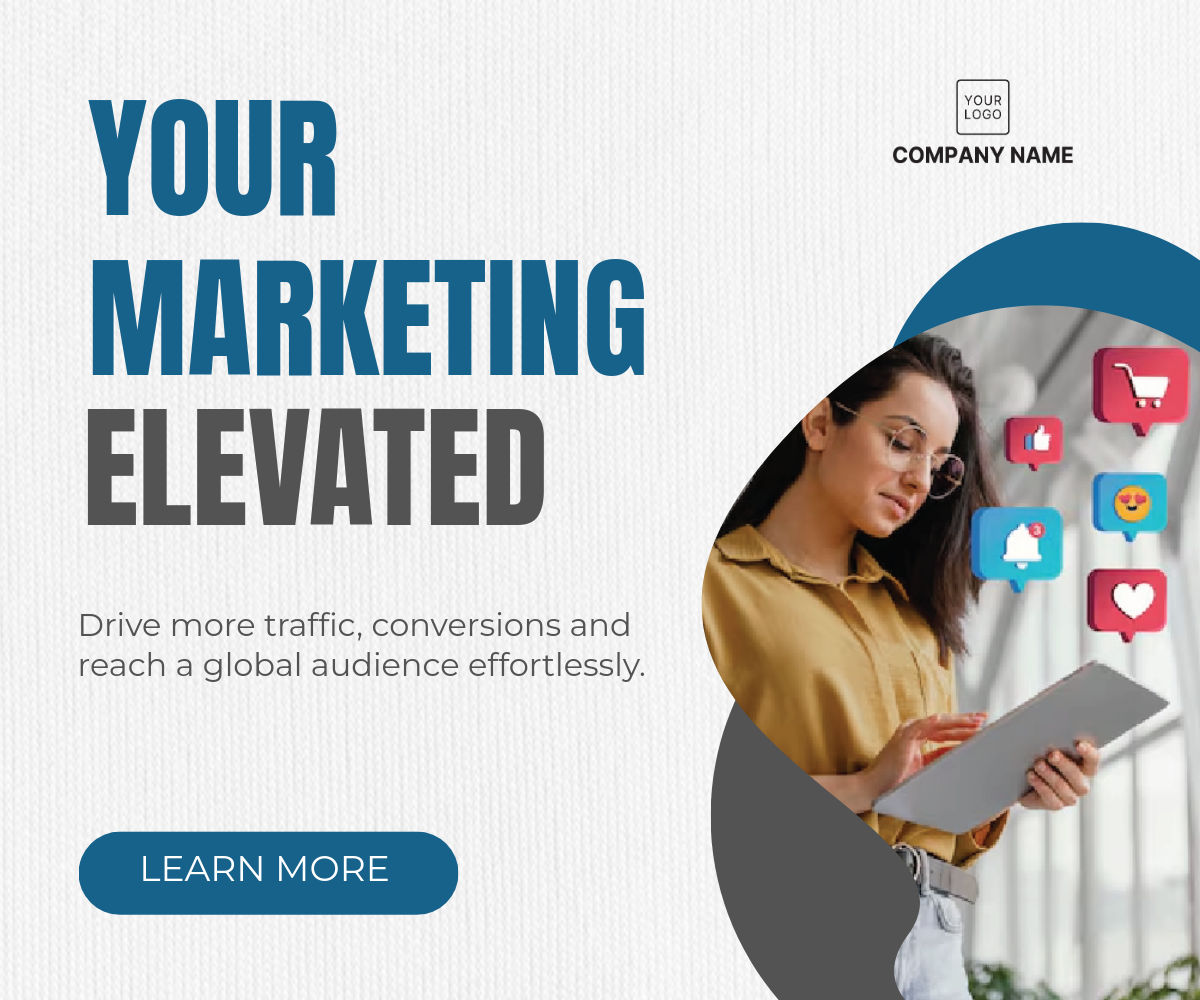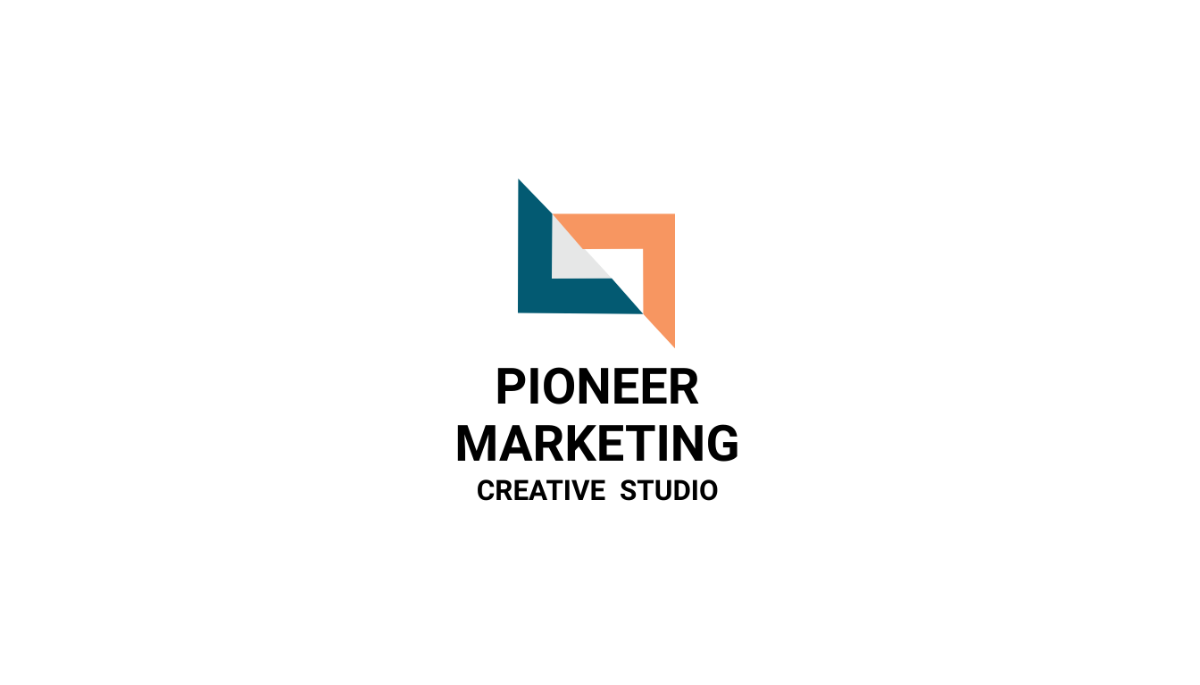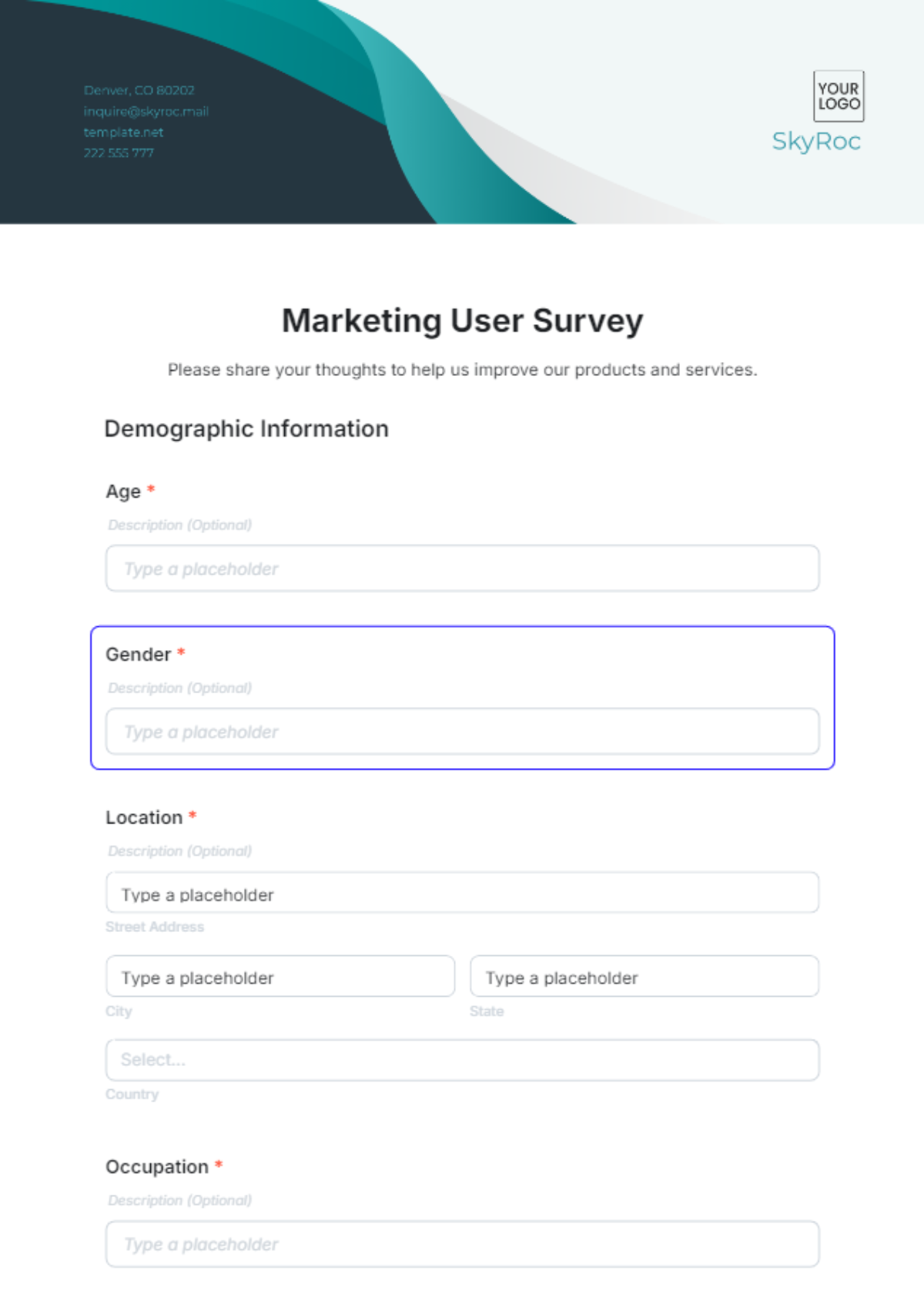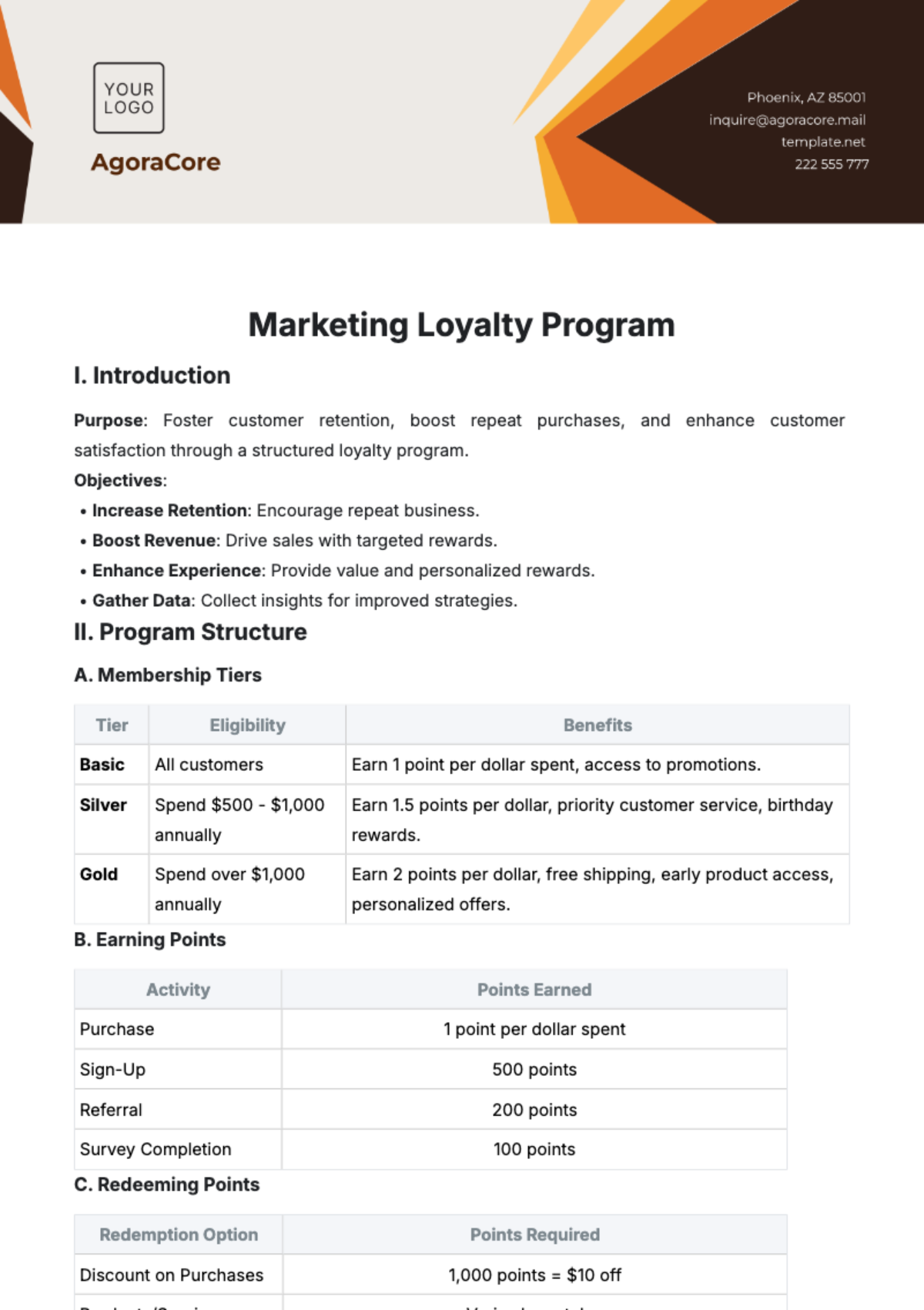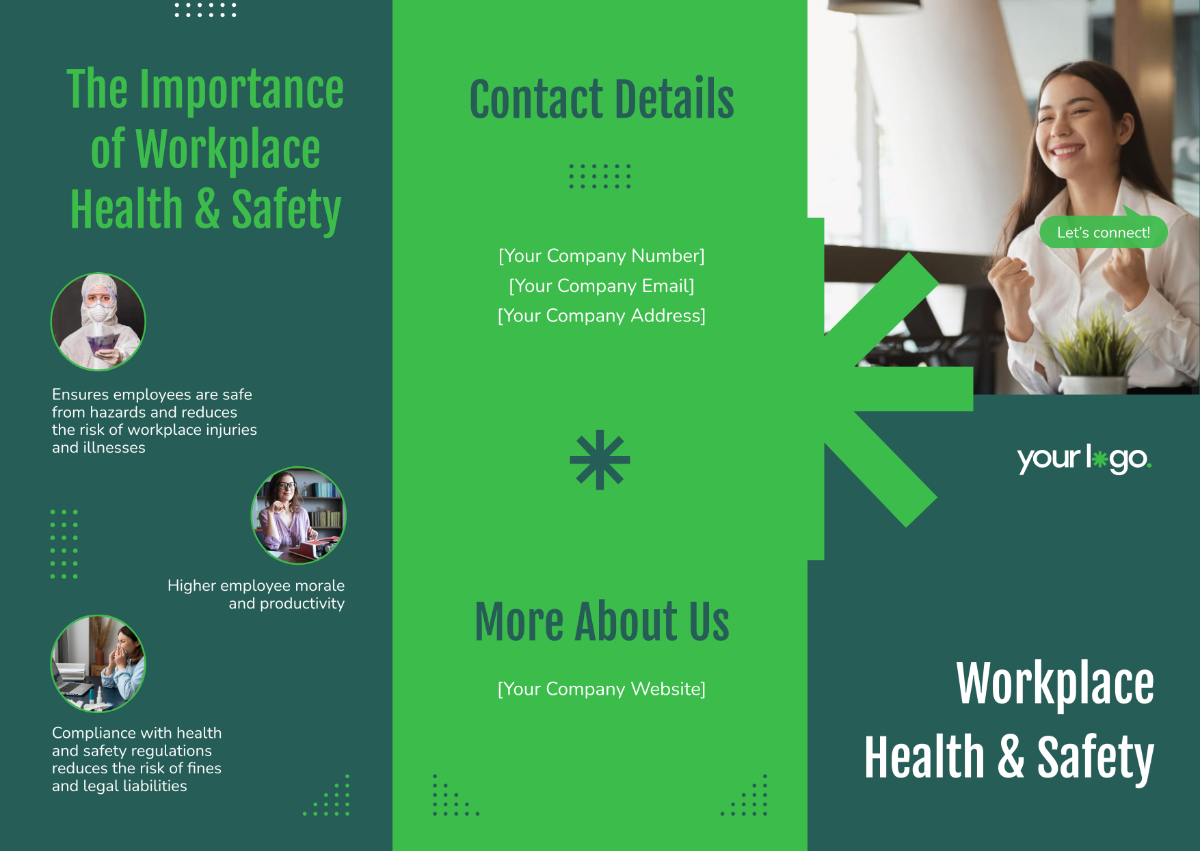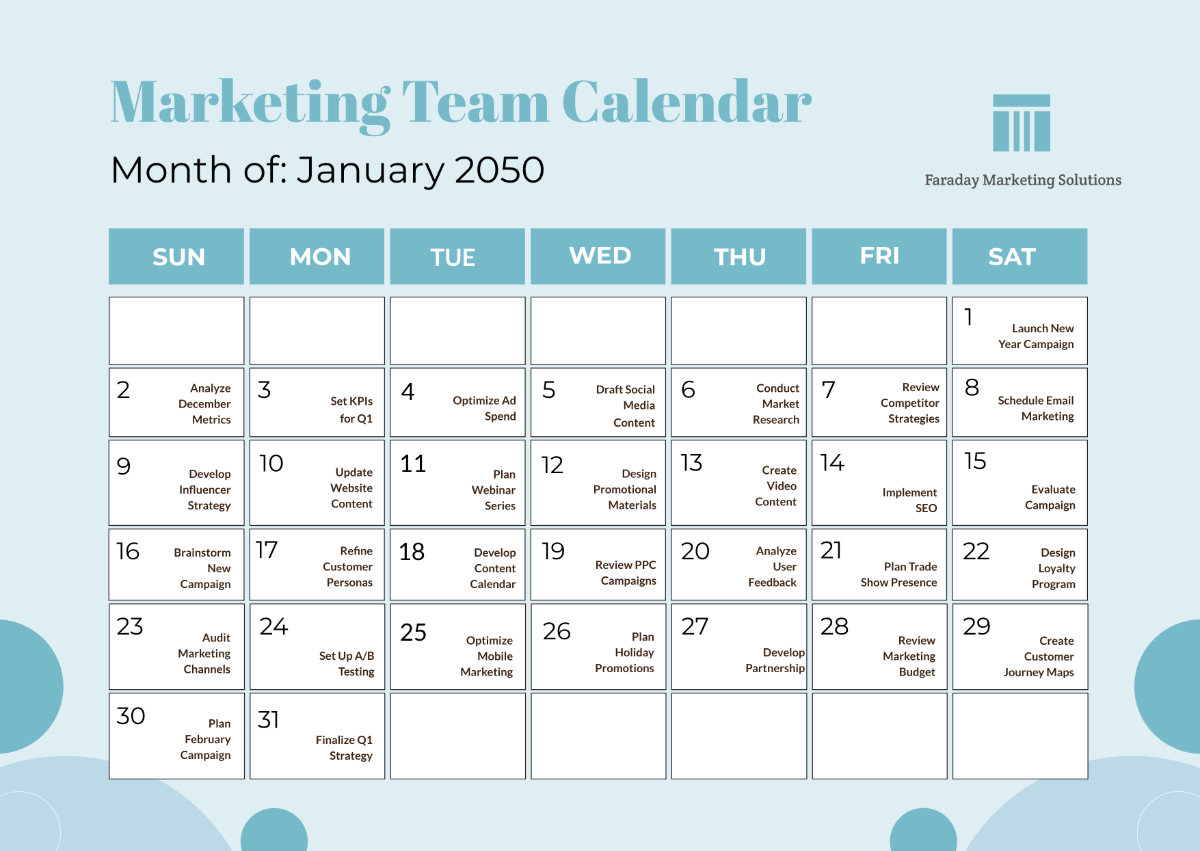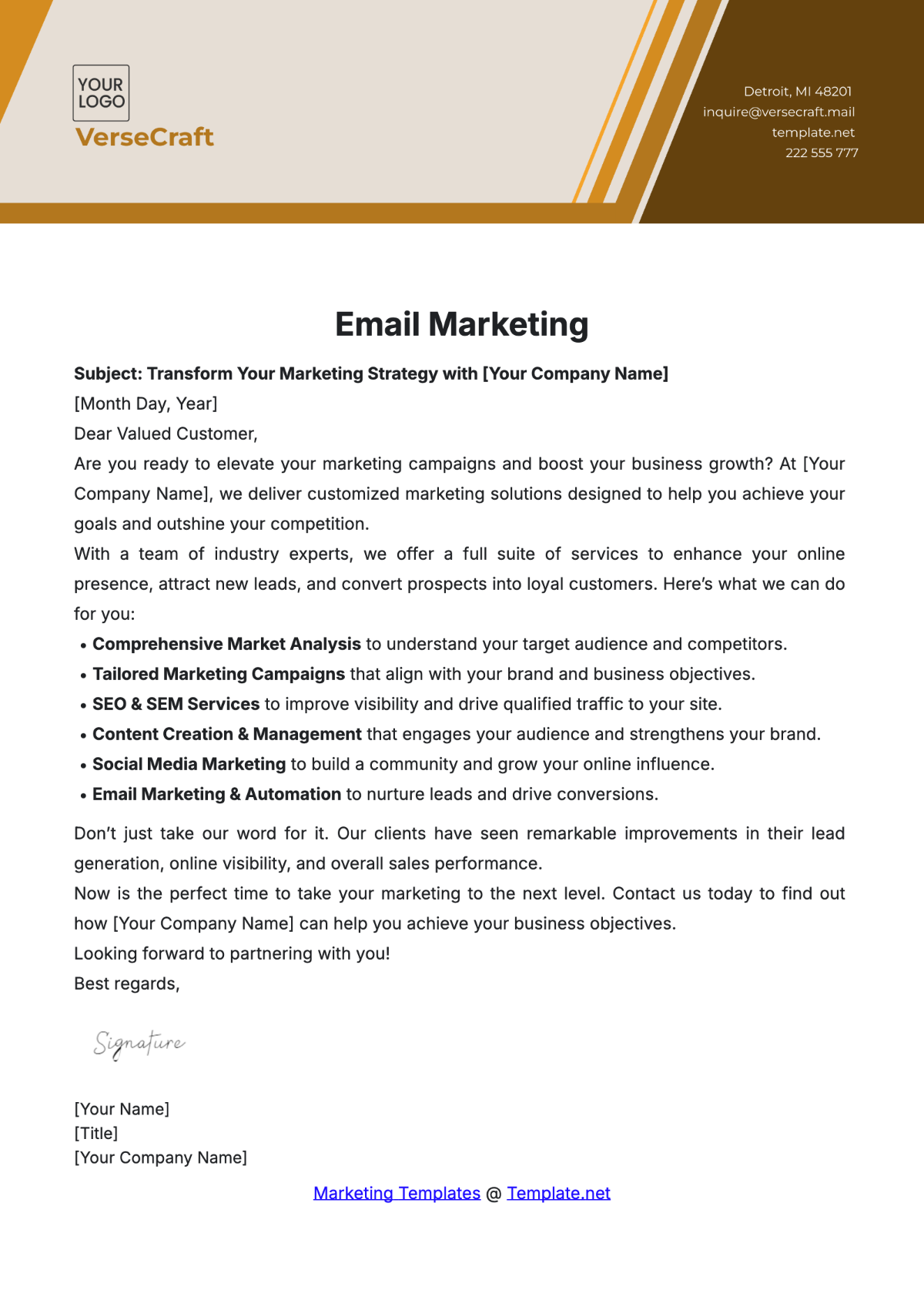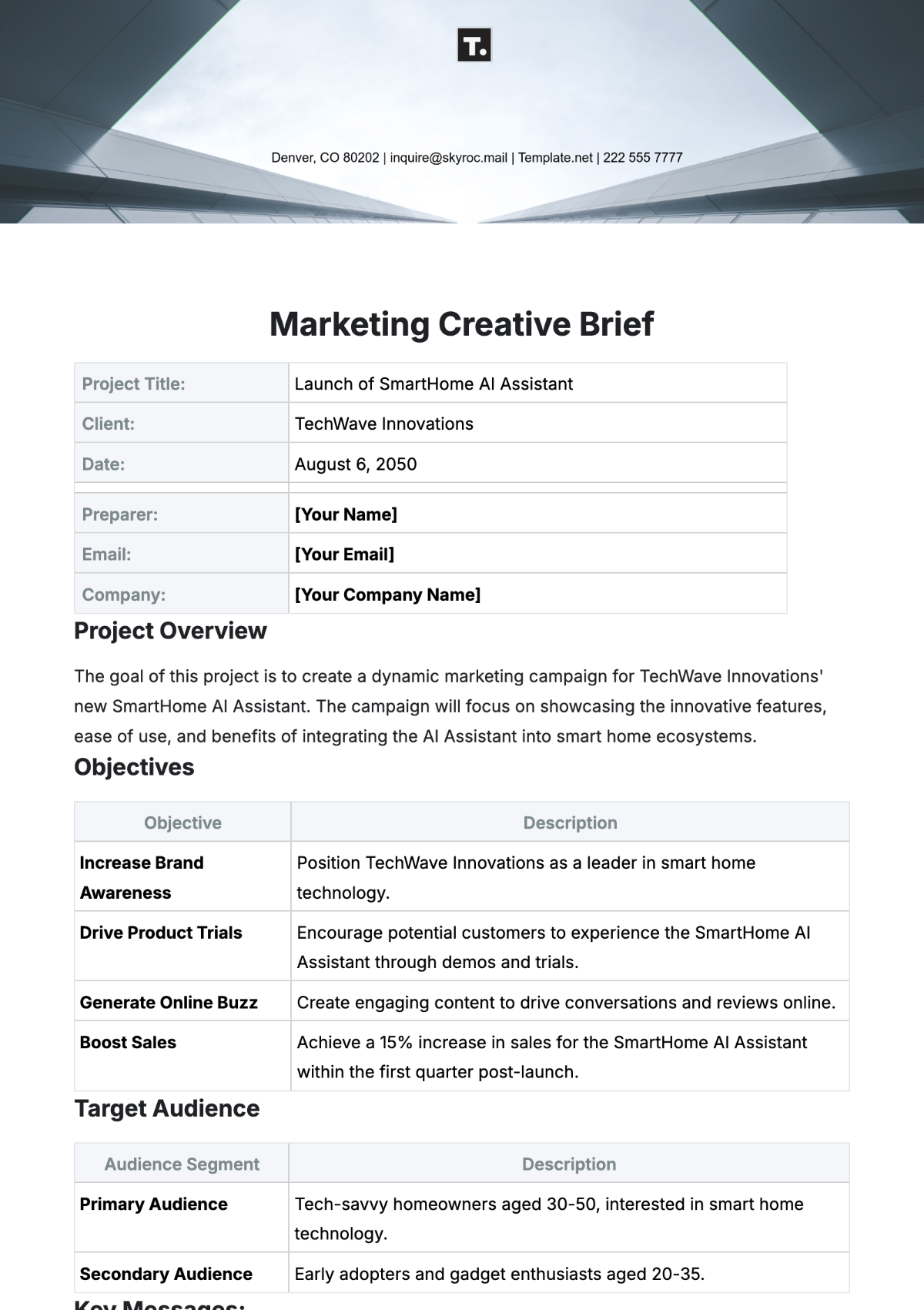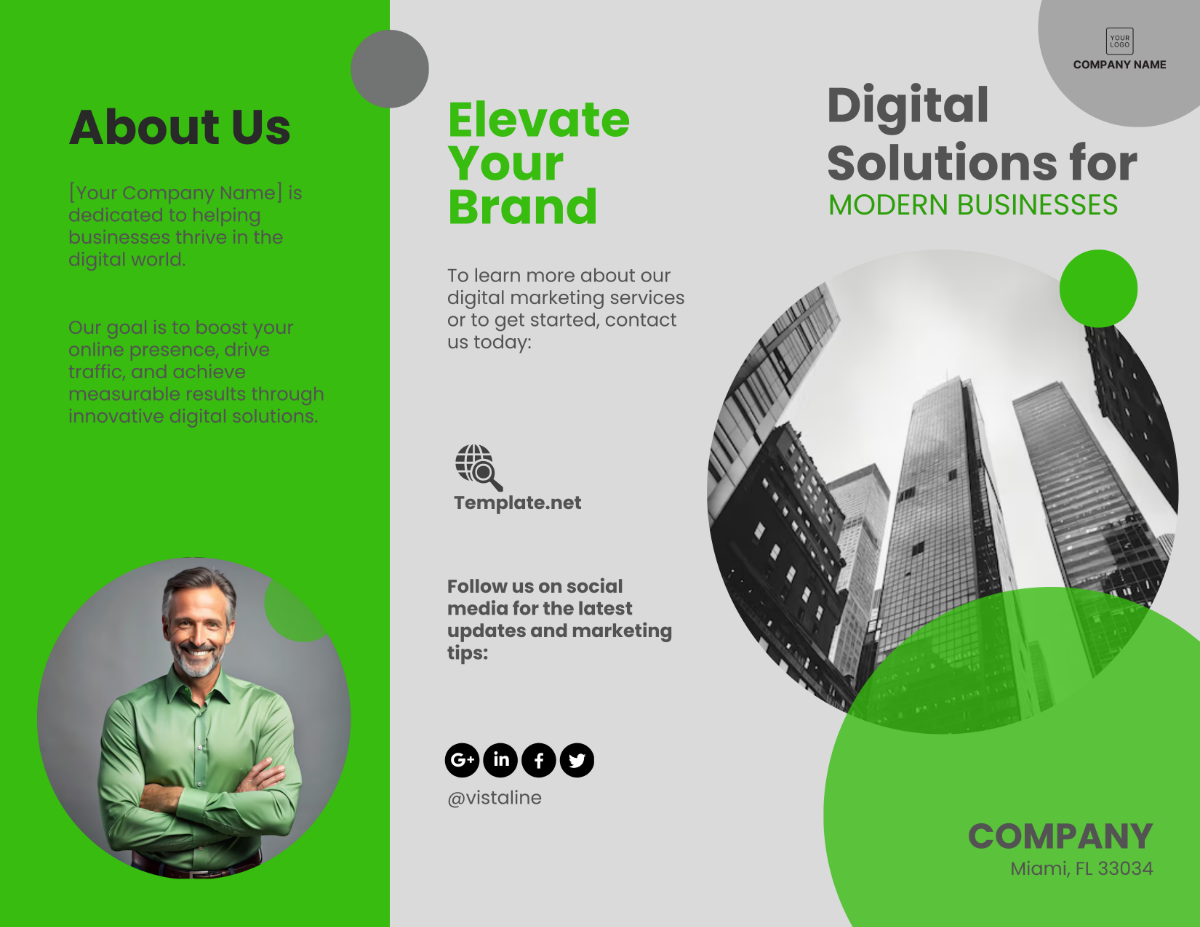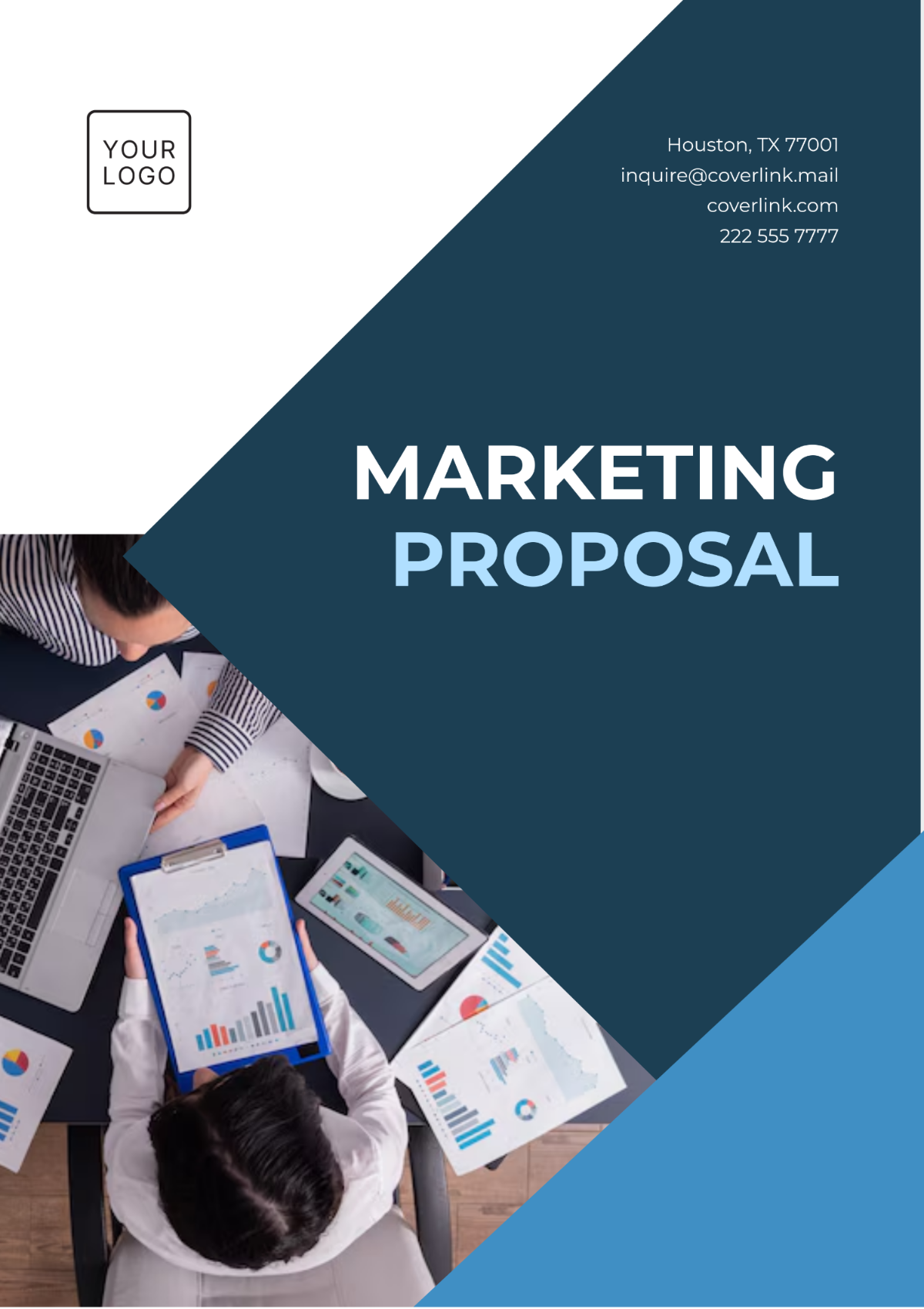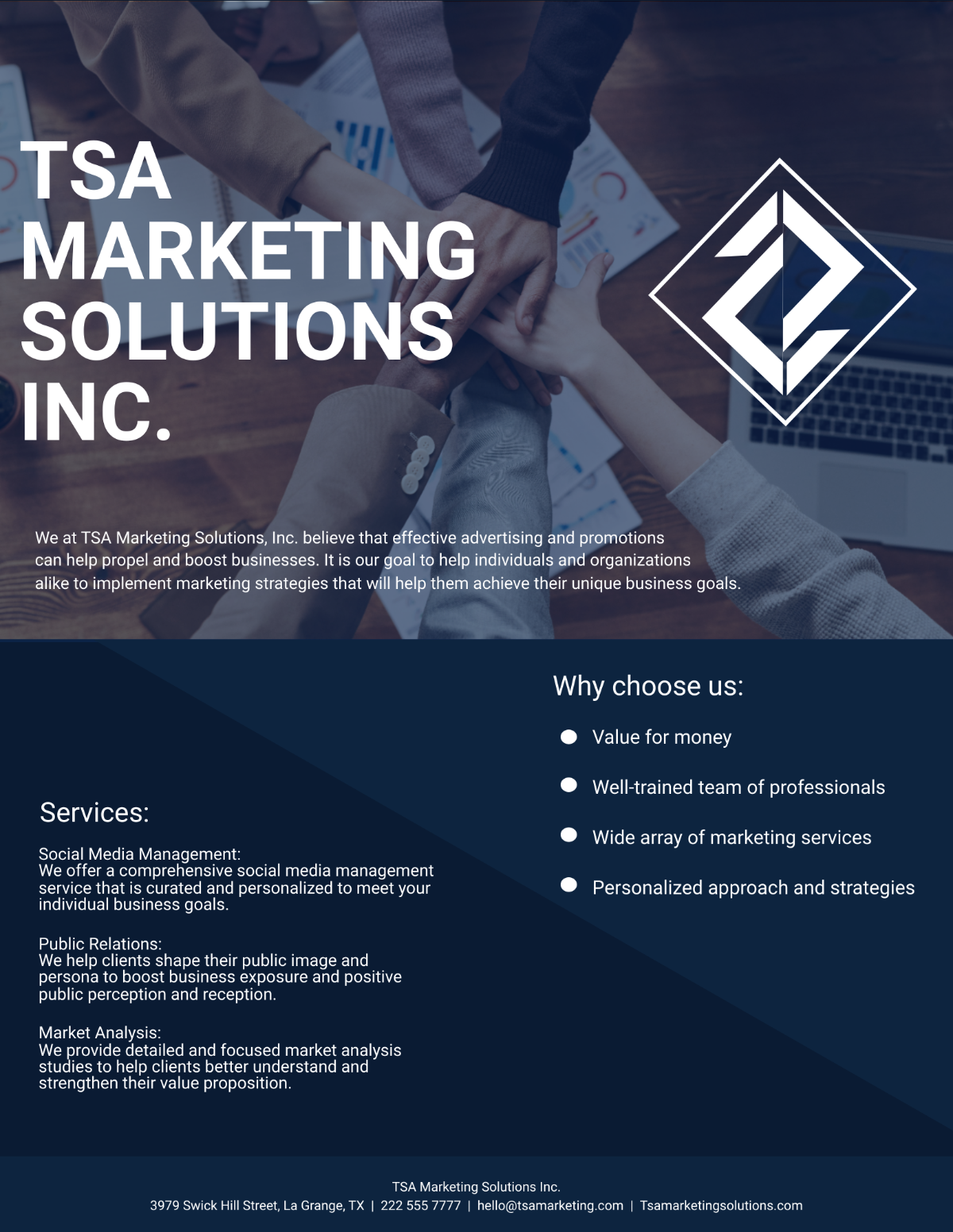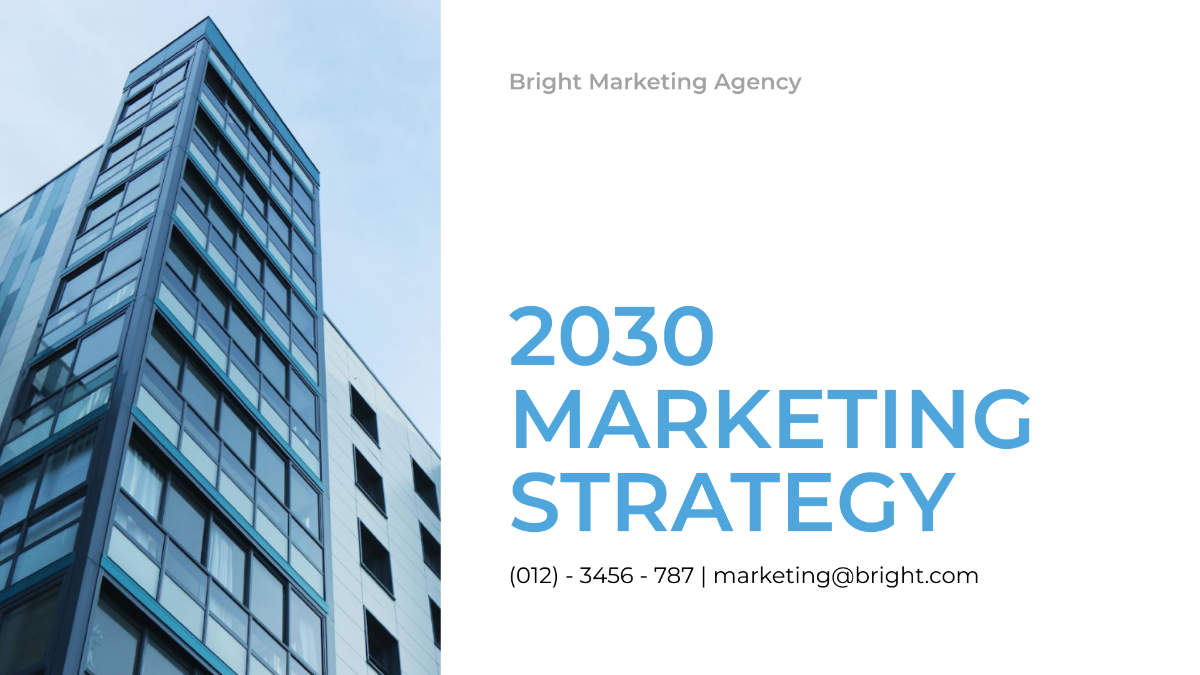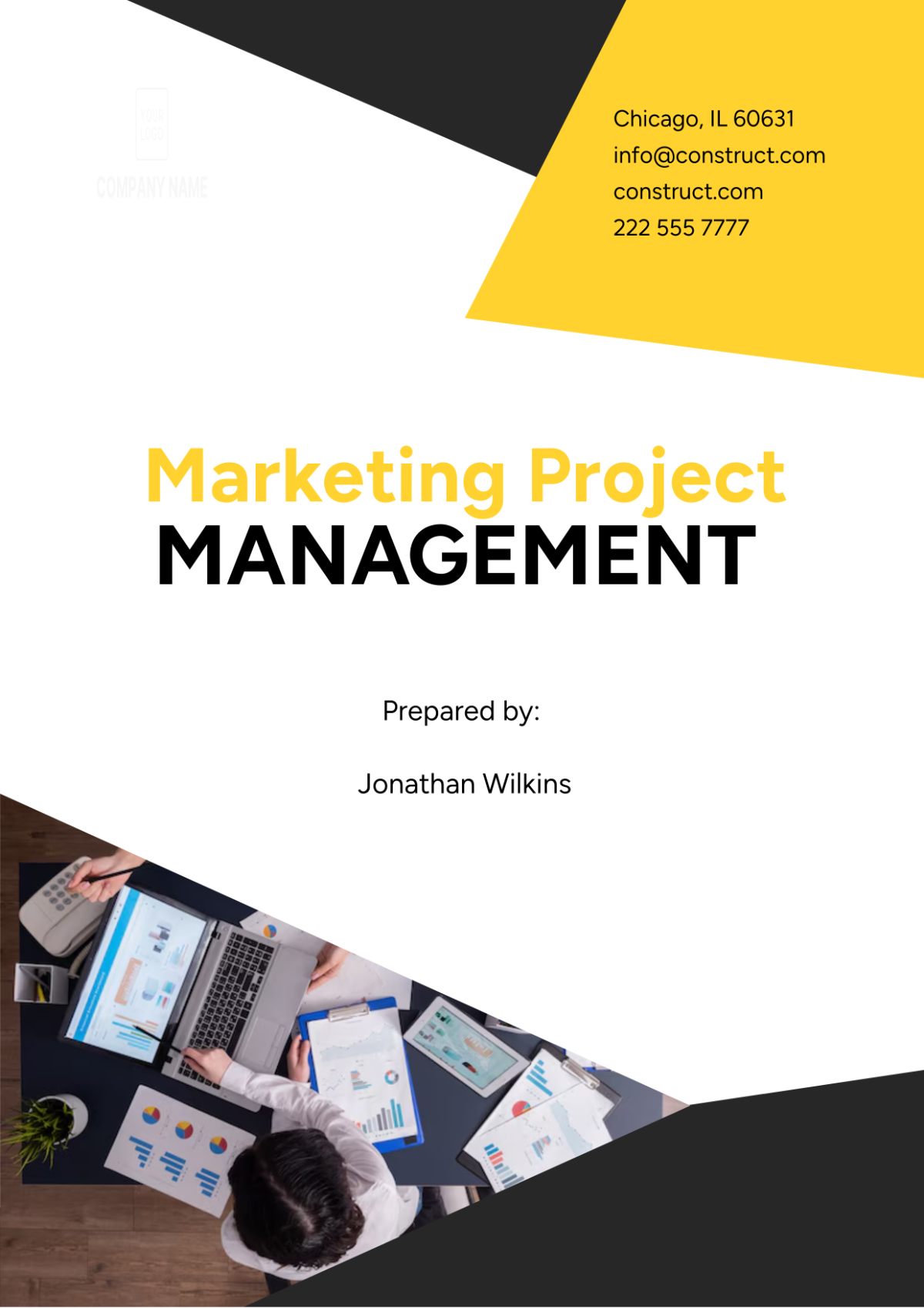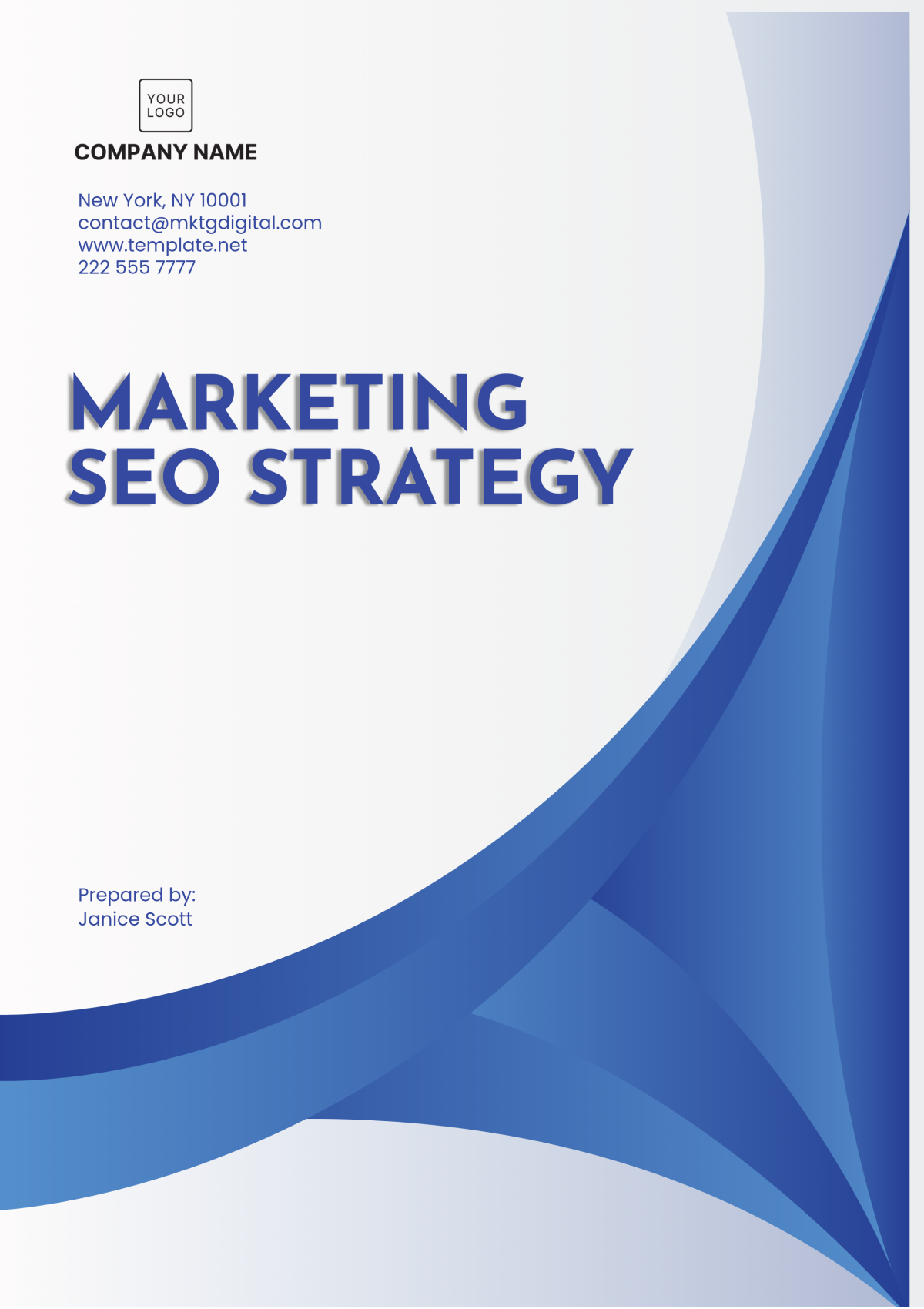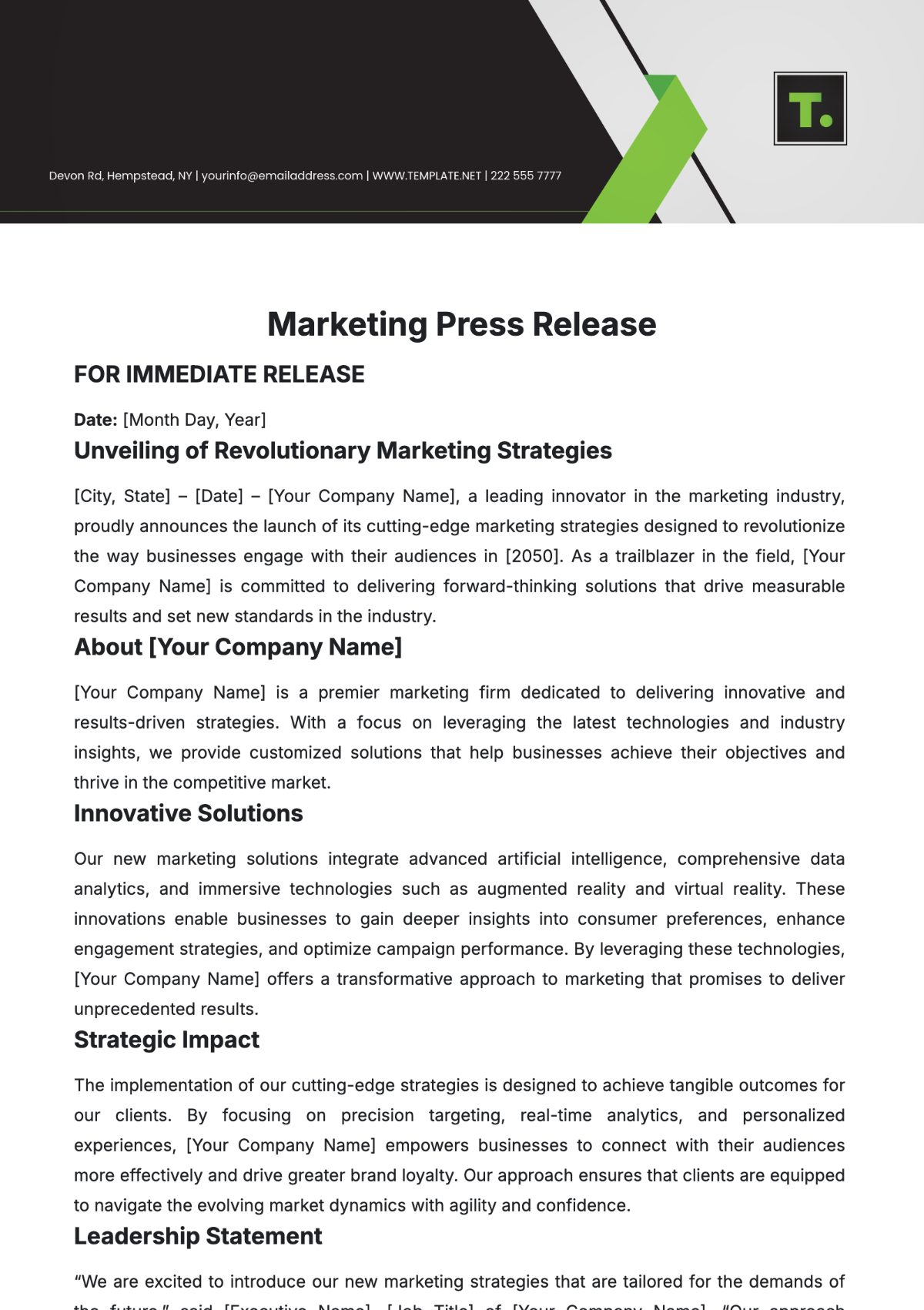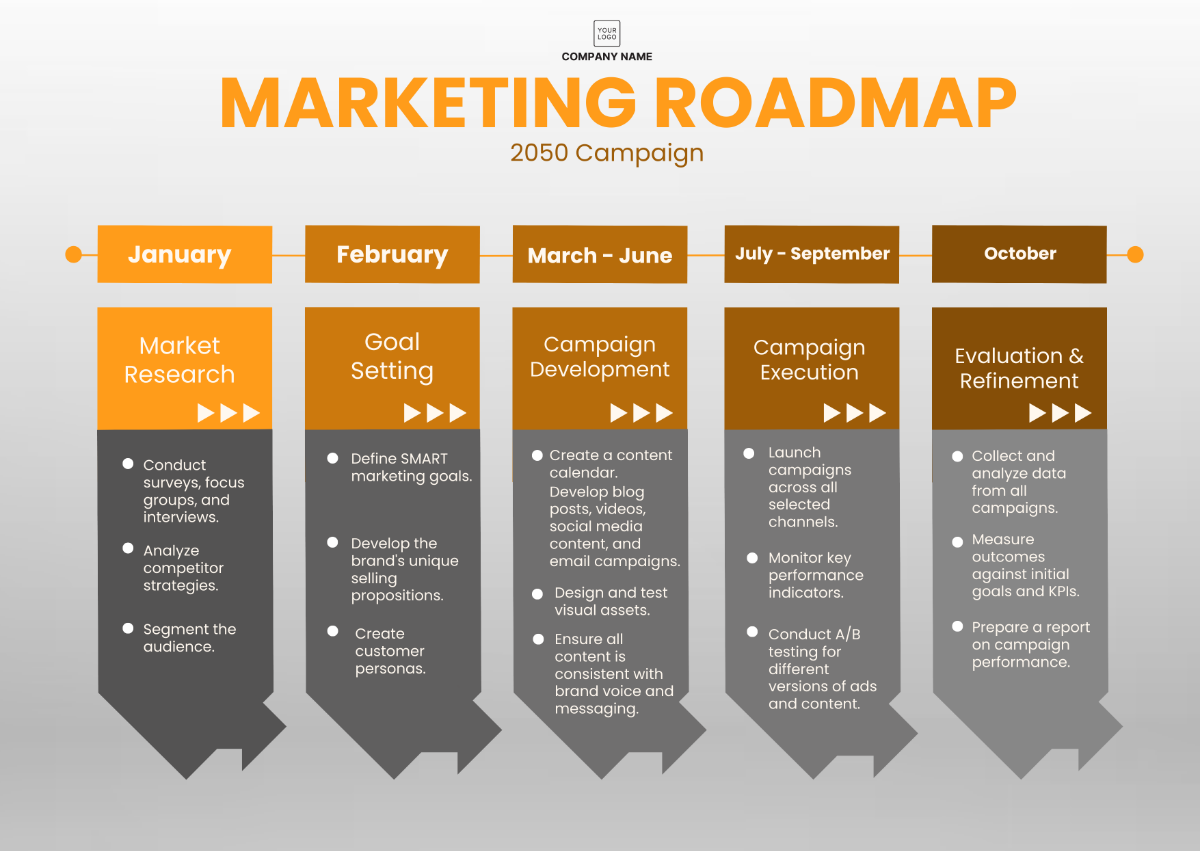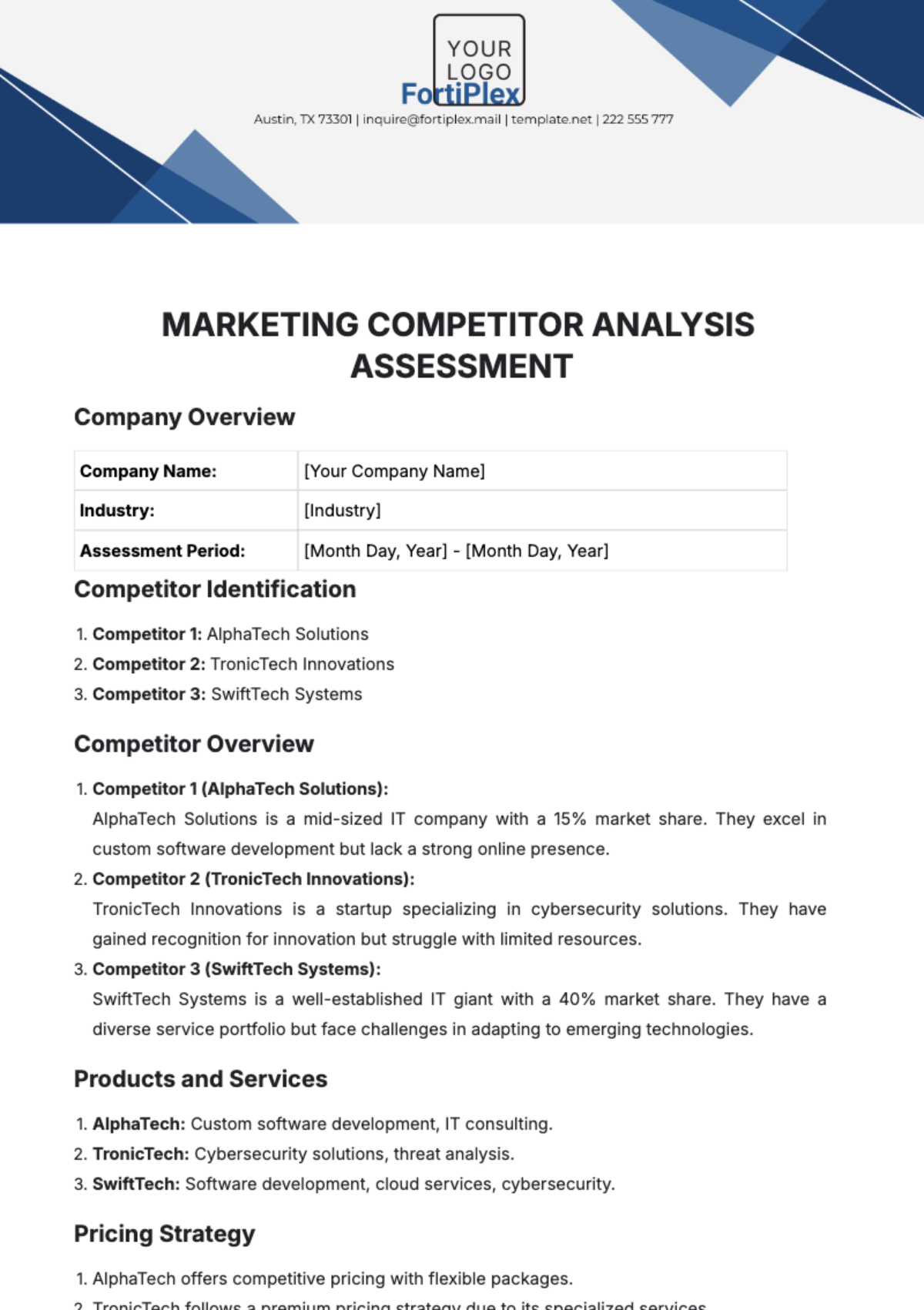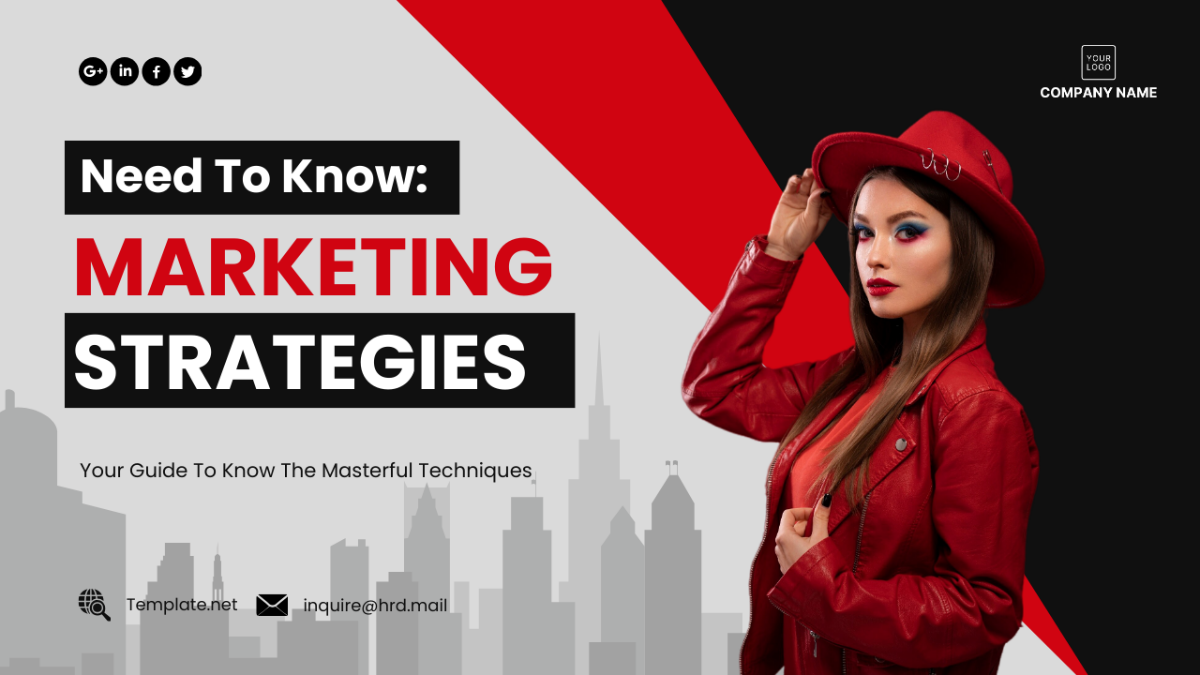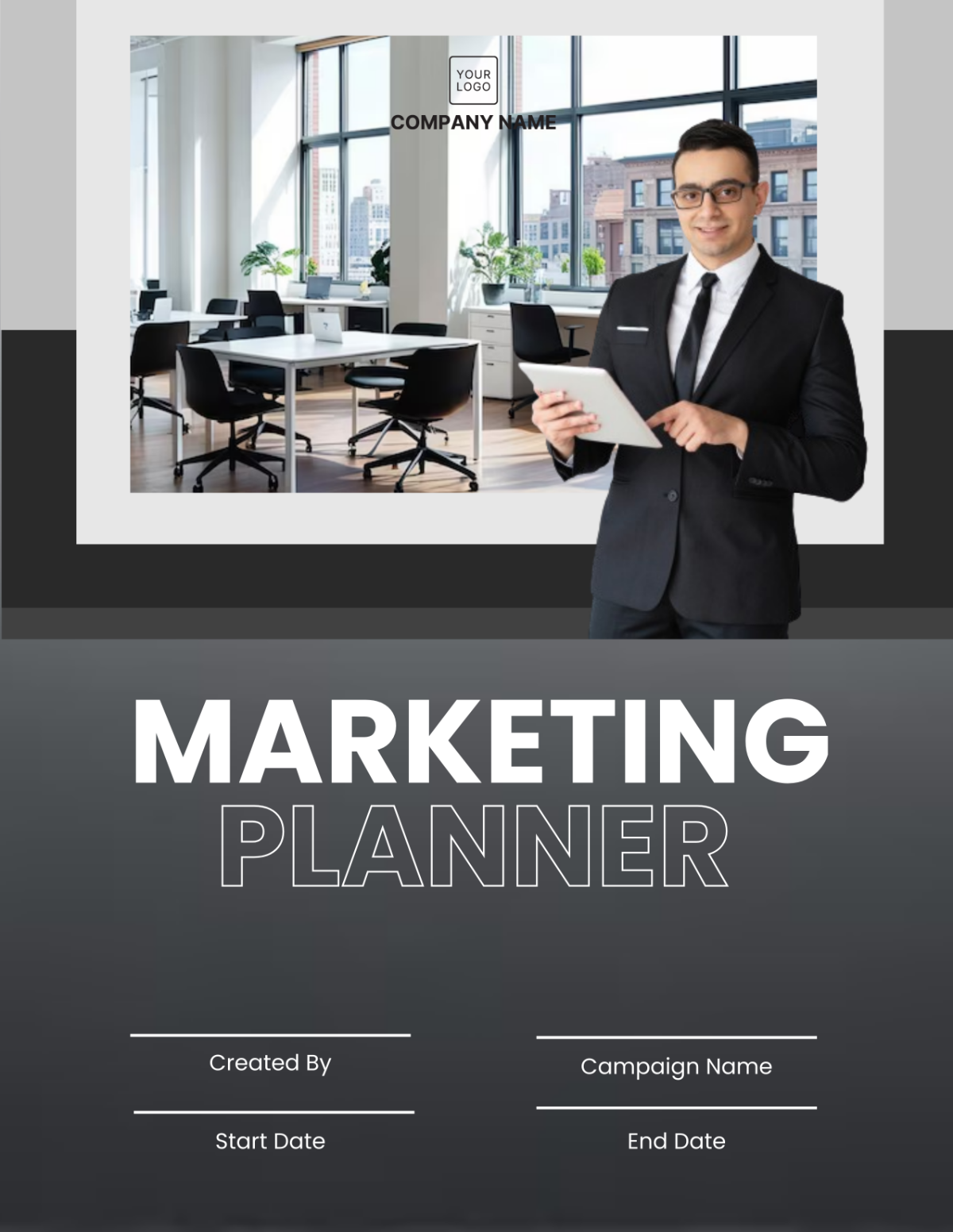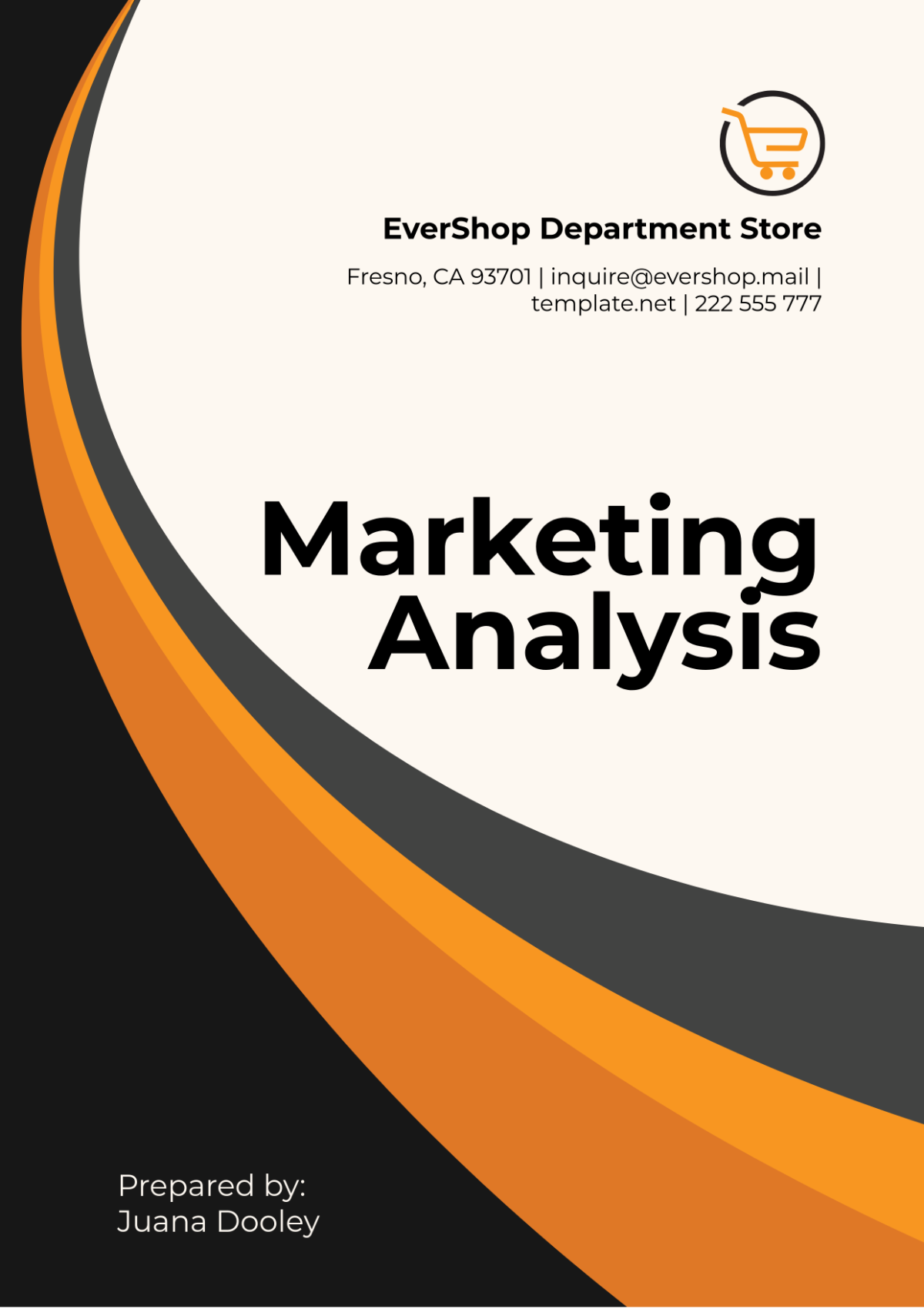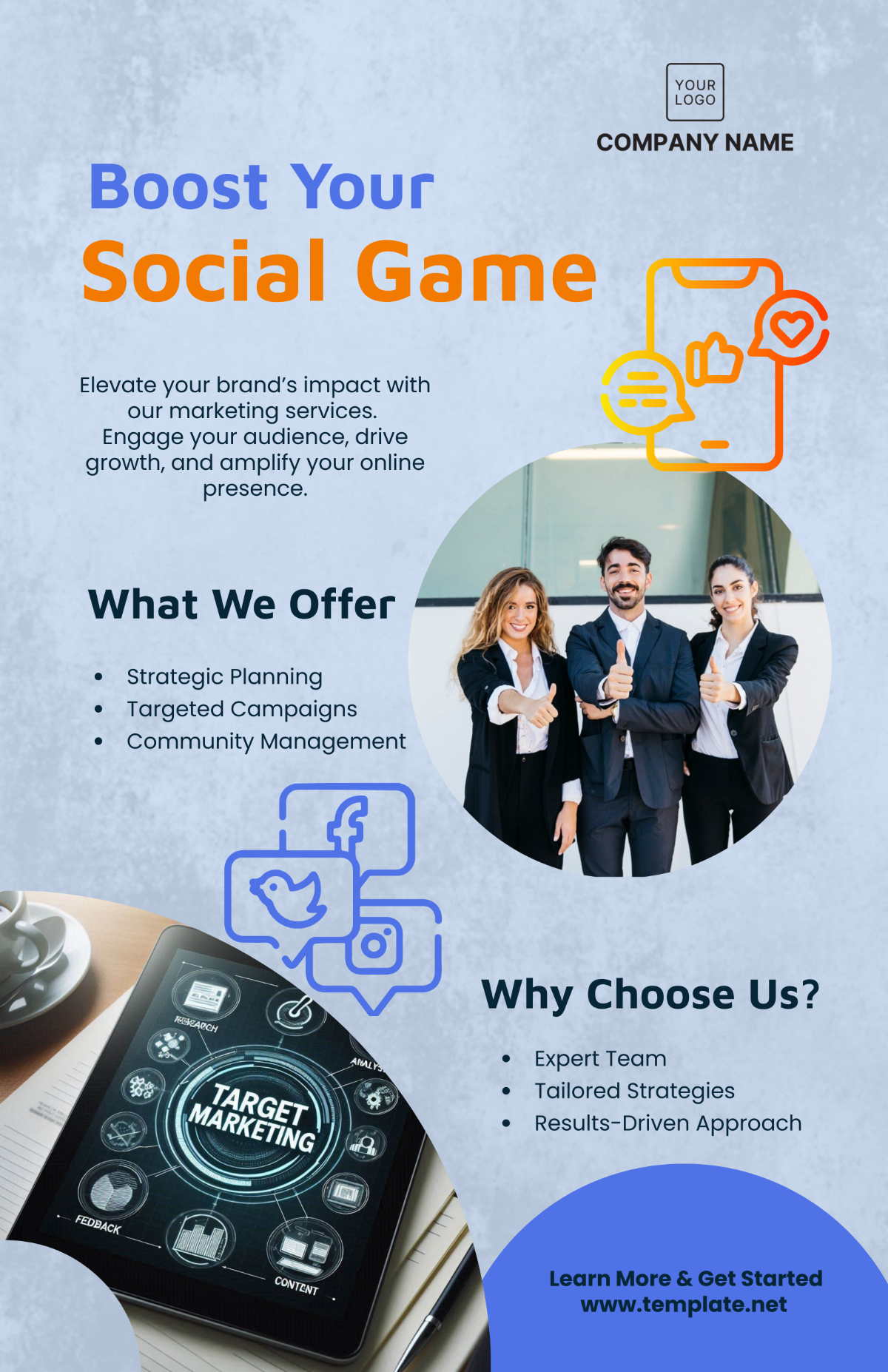Marketing Strategy Resolution
The Marketing Strategy Resolution outlines [Your Company Name]'s marketing goals, strategies, and objectives for the year [2055]. This document serves as a blueprint to guide our marketing efforts toward success.
1. SWOT Analysis
Strengths: |
|
Weaknesses: |
|
Opportunities: |
|
Threats: |
|
2. Goals and Objectives
2.1 Marketing Goals for 2055:
Increase website traffic by 30%: We aim to achieve this through targeted SEO and content marketing efforts.
Boost social media engagement: Increase social media followers by 20% and average engagement rate by 15%.
3. Target Audience
3.1 Description:
Our primary target audience consists of tech-savvy millennials aged 25-34, interested in sustainable living and urban mobility.
4. Marketing Strategies
4.1 Strategy 1: Content Marketing
Description: | Content marketing will focus on providing valuable guides and articles related to sustainable living and urban mobility. |
Key Tactics: |
|
Budget Allocation: |
|
4.2 Strategy 2: Social Media Advertising
Description: | Leveraging paid advertising on platforms like Facebook and Instagram to reach our target audience. |
Key Tactics: |
|
Budget Allocation: |
|
5. Content Plan
5.1 Content Types: Our content plan includes blog posts, videos, infographics, and email newsletters.
5.2 Content Calendar:
Month | Content Topic | Publish Date |
January | "Top Sustainable Commutes" | January 15, 2055 |
February | "Urban Mobility Challenges" | February 10, 2055 |
March | "Eco-Friendly Transportation Options" | March 5, 2055 |
April | "Green Cities: The Future of Urban Living" | April 12, 2055 |
May | "Reducing Carbon Footprint: Tips for Urban Dwellers" | May 20, 2055 |
June | "Electric Scooters: The Smart Way to Commute" | June 8, 2055 |
July | "Sustainable Transportation: Trends and Innovations" | July 15, 2055 |
August | "Cycling for a Greener Tomorrow" | August 10, 2055 |
September | "Public Transportation and Environmental Impact" | September 9, 2055 |
October | "Smart Cities and Sustainable Mobility" | October 7, 2055 |
November | "The Role of Technology in Urban Mobility" | November 12, 2055 |
December | "Year in Review: Sustainable Urban Mobility Highlights" | December 20, 2055 |
6. Budget and Resources
6.1 Budget Allocation:
Total Marketing Budget for 2055: $80,000
6.2 Resources:
Personnel:
Marketing Manager: Sarah Smith
Content Writer: David Johnson
Social Media Specialist: Emily Davis
Tools and Software:
Google Analytics
MailChimp
Facebook Ads Manager
SEMrush (for SEO analysis)
7. Timeline and Milestones
Q1 2055: |
|
Q2 2055: |
|
Q3 2055: |
|
Q4 2055: |
|
8. Measurement and Analytics
8.1 Key Performance Indicators (KPIs):
Website Traffic (Google Analytics)
Social Media Engagement (Facebook Insights)
8.2 Tools:
We will use Google Analytics and Facebook Insights to track and analyze marketing performance.
9. Risk Management
9.1 Risks:
Budget constraints may limit campaign effectiveness.
Market shifts impacting urban mobility trends.
9.2 Mitigation Strategies:
Monitor the budget closely and make adjustments as necessary.
Stay agile and adapt marketing strategies based on market changes.
10. Reporting and Evaluation
10.1 Reporting Frequency:
We will provide monthly progress reports and quarterly comprehensive assessments.
10.2 Evaluation:
Monthly reports will analyze KPI performance, while quarterly assessments will measure goal achievement and propose adjustments if needed.
11. Conclusion and Commitment
At [Your Company Name], we wholeheartedly commit to the successful execution of this marketing strategy. Our dedication to achieving our goals and objectives for the year [2055] is unwavering. We are driven by our passion for sustainable urban mobility and our desire to make a positive impact in this field. With a cohesive team and a well-structured plan, we are confident that we will not only meet but exceed our targets, bringing us closer to a greener and more sustainable future.
12. Appendices
In the appendices section, you can find a wealth of supplementary materials that fortify this resolution. These include:
Market Research Report
Competitor Analysis
Content Calendar
Budget Breakdown
Monthly Progress Reports
